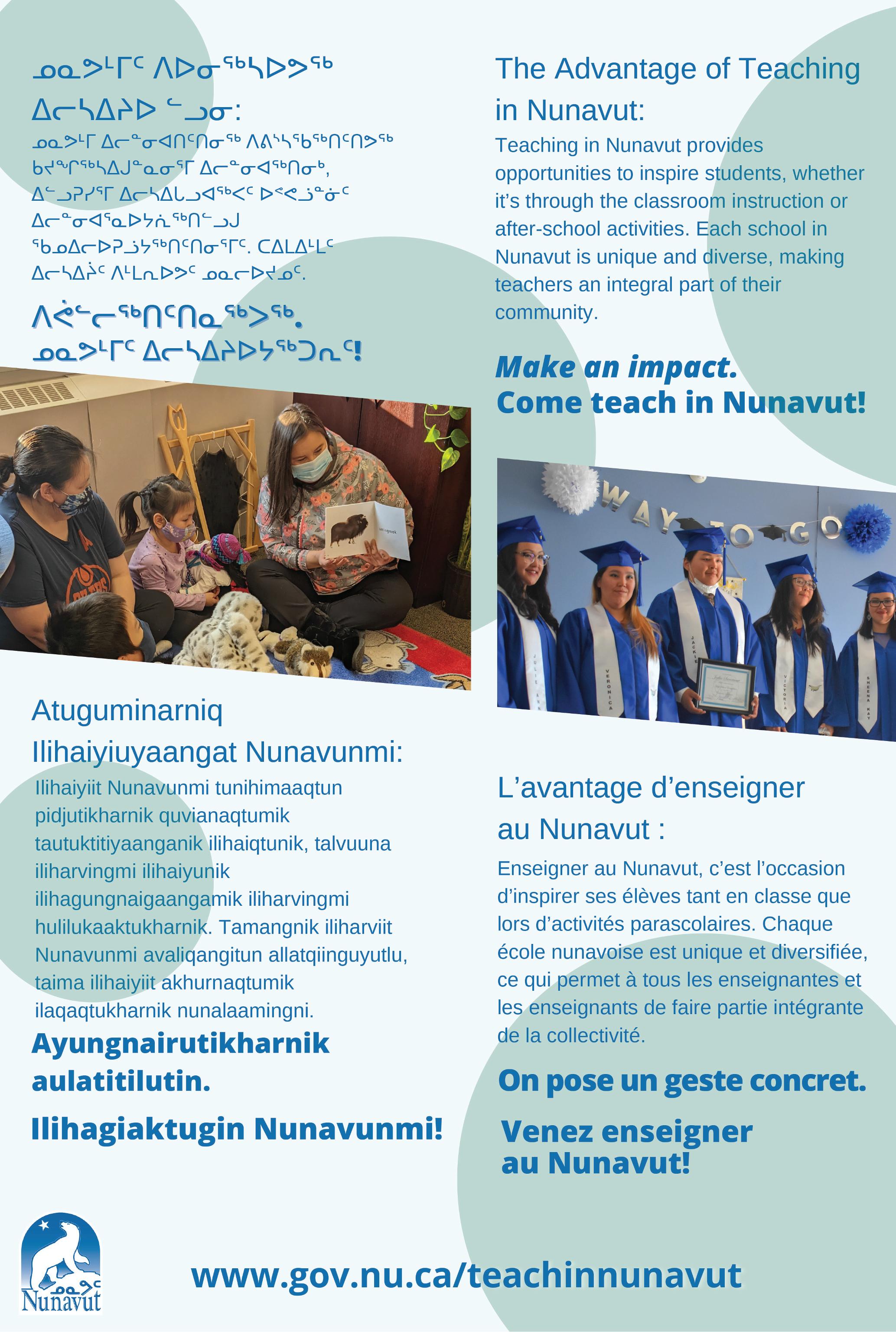




















your knowledge and learned you are shining examples of what Inuit children need to succeed for now and in the future. Your work is a strong foundation for Inuit educators who support children in learning and sustaining their language.
I really appreciate the efforts of Nunavut Tunngavik Incorporated, not only for organizing this gathering, but also for fostering unity and connections between Inuit teachers.
By Derek Neary Northern News ServicesGovernor General Mary Simon delivered a keynote address to more than 300 individuals attending the Sivummut — Inuit Educators’ Gathering in Iqaluit on Feb. 16. Nunavut Tunngavik Incorporated organized the event.
This is a transcript of Simon’s speech, delivered from Rideau Hall in Ottawa, edited for length:
In terms of Inuit education, it’s a topic I’m very familiar with, it’s also one that’s personal to me.
When I was growing up as a child in Kuujjuaq (Que.) — it used to be called Fort Chimo — I remember the trouble we would be in if we dared to speak our language, Inuktitut, on school grounds and if we were caught speaking Inuktitut we were punished for it.
Thank goodness this is not what’s happening now. This is not what schools should be, and I’m really glad it no longer applies in our schools up north in the communities.
But we still have a lot of work to do, especially the teachers that are at this conference and other teachers across Inuit Nunangat. There’s still a lot of work required.
This gathering allows teachers from Inuit regions and other Arctic nations the chance to speak about important issues and to determine best practices and a way forward. You have shared
To move forward, a successful teacher needs to develop and maintain two things: truth and trust. Truth means acknowledging the past, particularly the lived experiences of Inuit. It means finding ways to improve teaching in the Inuktut languages in schools. Our language is central to our identity, as you know, we live it every day. It’s really part of who we are.
In the past, those who forced curriculum on Inuit stripped language as a way to repress our culture. But today we understand what was done and how language is fundamental for our future and for reconciliation.
A decade of awareness
The International Decade of Indigenous Languages, proclaimed by the United Nations, began last year as a way to raise awareness of Indigenous languages, including those languages that are in danger of disappearing.
Throughout the decade, it recognizes the importance of preserving, revitalizing and promoting these languages as a way of promoting culture. Too many Indigenous languages have already been lost. So the continued strength and vitality of these languages should not be taken for granted.
So when I was appointed here as governor general, I really brought my language, Inuktitut, with me to Rideau Hall and it really influences my work. I take the opportunities to speak Inuktitut whenever I can as a way to show its importance to all Canadians.
I know you have spoken this week about Inuit Qaujimajatuqangit and the importance of using that as a
foundation for curriculum development. Each principle is a truth and you addressed many of them during this gathering: making decisions through consensus, respecting others and being inclusive. Simply by being here, you are fulfilling another principle — you’re working together to build a better system for our Inuit children.
So I want to quote from the 2011 National Strategy for Inuit Education, which I worked on with ITK (Inuit Tapiriit Kanatami). Around the time I finished my term as president, I was directing the development of the National Strategy for Inuit Education… Developing new curriculum really requires collaboration between Inuit educators and Elders to develop new learning modules. New Inuit language terminology is very important because our way of life has changed so much that we have had to develop new terminology to be able to speak about the new technology, especially the new technology that we use in our everyday work. And also it’s really important to mentor the new generation of younger teachers in all the
appropriate methods.
Throughout my career… I have aspired to support really the positive experiences for Inuit in school. It is one way to heal from the pain that was inflicted by the education system and residential schools and the generational trauma that remains really a burden for the parents and the grandparents.
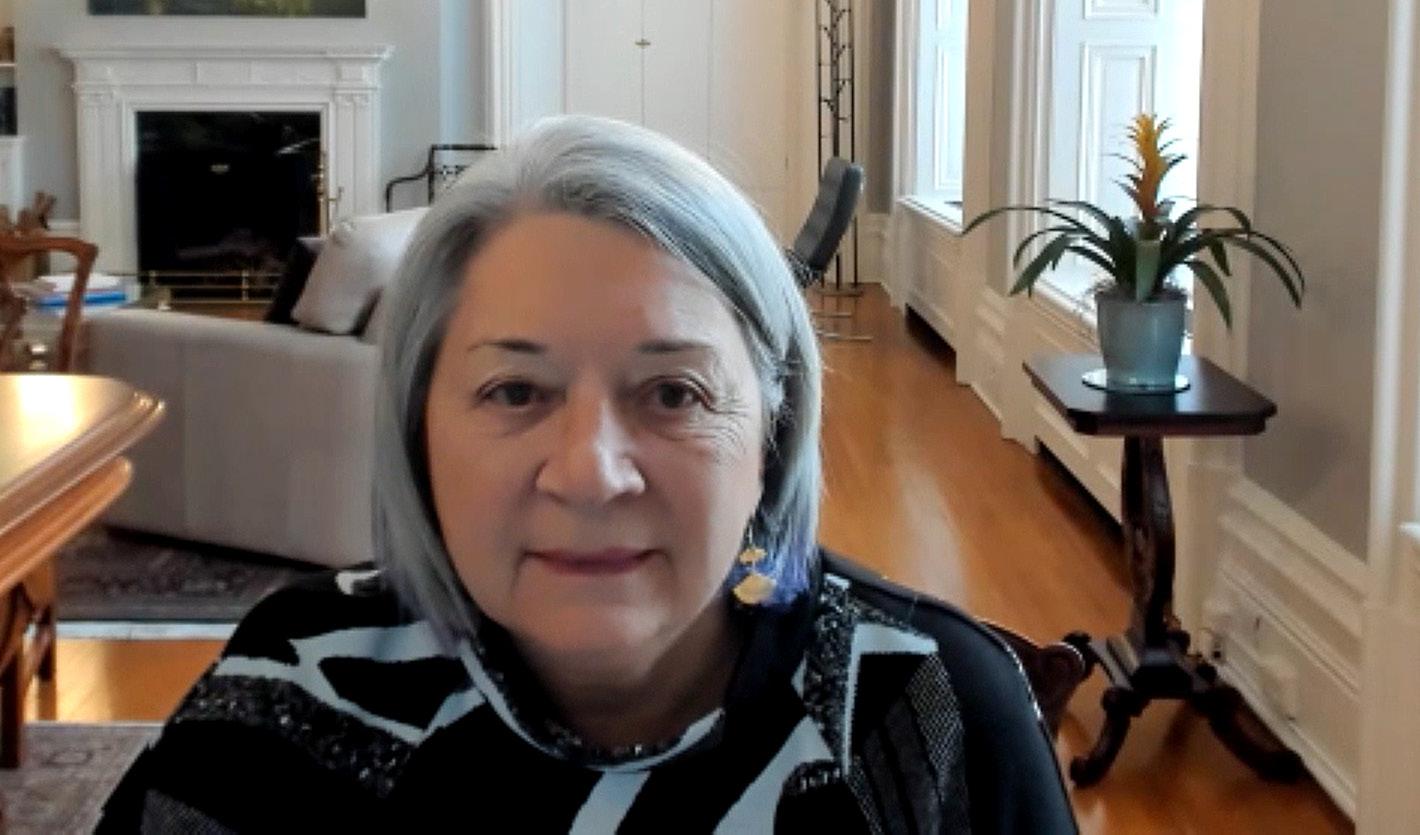
Truth and trust
To move forward requires truth and trust. It requires trust in government and in an education system that has historically failed too many Indigenous children, in our case Inuit children. That trust is strained every time unmarked graves of residential schools are found or unearthed. It is in our minds every time we hear of young people who take their own lives because they see no way forward, they see no future.
You have a chance here and now to rebuild trust in a real and lasting way, to show our children that they can learn and sustain their language, that they can thrive in Canada and in their community. So I encourage you to reach out to parents and the community and engage them in
the classroom. I encourage you to learn ways to support education delivery in Inuktitut, or Inuktut. I encourage you to be open and honest about what you need and listen to what your students need. Take every opportunity to acknowledge your success and also the success of your students. One of the ways of doing this is to request to participate in the in the Governor General’s Academic Medal Award. This is a medal that is given to students that have achieved a very high level of learning in their school.
Learn lessons from elsewhere
I think we also have so much we can learn from outside of our own regions. There is every reason to apply and tailor successful models to our own unique circumstances. In this way, Inuktitut and other Indigenous languages can thrive. I know in my own region, we teach (Inuktitut) up to Grade 3 and then once the child reaches that level, they switch to English or French. Sometimes that has been a problem for some students because they suddenly have to learn in another language and that creates a bit of a gap in their learning cycle. I guess
what I’m saying is we all have a part to play.
During last year on the National Day for Truth and Reconciliation, I had about 100 children here at Rideau Hall and I took that opportunity to teach them how to say an important word that is a big part of my life and I also use it a lot in my work, in my mandate as governor general. That word is ajuinnata. I wanted to let them know how important my language and culture is to me, and it was a way for me to pass on my knowledge and passion to the next generation. In my dialect, ajuinnata means to never give up. It’s a promise to commit to action no matter how difficult the cause is. In the spirit of ajuinnata, you are also working together to promote truth and build trust to create a bright future for all Inuit children. It is a hard task but one that is worth doing and one that I think we must all succeed at.
In appreciation for your efforts as Inuit educators, I encourage you to continue building on the connections made over the course of this gathering for the benefit of students and teachers alike.
Most educators would agree that education is the “primary root” of society. I’m inclined to think that in the quest for effective solutions, no genuine educator will turn a deaf ear to the view that education is not at all about learning or studying. In fact, Albert Einstein made a germane remark that “Education is not the learning of facts, but the training of minds to think.”
GU EST COMMENTstatements ought to provoke the minds of humane educators to think more deeply about this issue, especially in the context of NWT. Therefore, it serves as a mind-opener, a daring invitation for discussion on the topic.
What does it mean?
the years and hasn’t produced any real education at all – the only attempts made by students are to memorize textbooks and compete for grades and diplomas. It’s plausible to assert that every successful endeavour advances little-by-little, to greater heights.
by Christopher AnyadubaluIt is mind-stinging, like the concept of calling for a change and refurbishment of the system. Such sharp
Published Annually by Northern News Services Ltd.
Award Winning Northern Newspaper Publisher
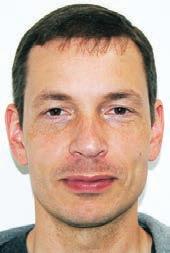
Head Office: 5108-50th Street
Yellowknife, Northwest Territories
Yellowknife: 867-873-4031
The cardinal question is: Does it mean that the NWT education system, after all these years, has missed the generally accepted targets?
Some think that the system has failed and deteriorated over
StorieS by Derek Neary Features WriterCould it not be that our education system is at its transitional steps of transformation? Thus, as the saying goes, “deciphering an illness is the very first step toward curing it.”
Devoted educators airing their views on this matter in the newspapers, on social media platforms, on television and on radio stations send a signal that all is not well and that something needs to be done to save the “primary root” of society’s progress and development.
Studying is not the same as education, but it could be perceived that studying is one of the first steps in education. In other words, studying is an intricate part of education, just as the universal set necessarily includes the subset. Hence, if the NWT education regime has achieved this first step, which is learning from textbooks and memorizing concepts, then the issues become: What’s next? Where do we go from here? Which way forward?
Pragmatically, there is no such concept as “knowledge for knowledge’s sake.”
Governor General Mary Simon encourages Inuit educators to support each other in promoting language, culture“You are shining examples of what Inuit children need to succeed for now and in the future. Your work is a strong foundation for Inuit educators who support children in learning and sustaining their language,” Governor General Mary Simon told Inuit educators at a conference on Feb. 16. Screen capture
Knowledge is worthwhile only when it is made explicit, visible, and practical, and/or is translated into action. Therein lies wisdom, the ultimate end of education — the highest good. In view of this, every education system to be reckoned with must transcend the realm of mere acquisition of knowledge to that of usage/application of knowledge to the immediate societal environment.
This point might be made by comparing education with science and technology. In its strictest sense, science might simply be defined as the study of things as a general proposition not self-evident but proved by a chain of reasoning while technology is seen as the product of science, or “science in action.” Thus, a sound education ought to aim at the translation of theory into practice, the application of knowledge derived from classroom lessons to real-life situations. This underlying principle might very well be seen as the brain behind the success of the Japanese approach to education.
In the context of NWT, therefore, the way forward might be to morph students’ theoretical learning into the practical aspects of education. Technology — in the sense of the application of knowledge to real-life situations — is the way forward to revitalize the
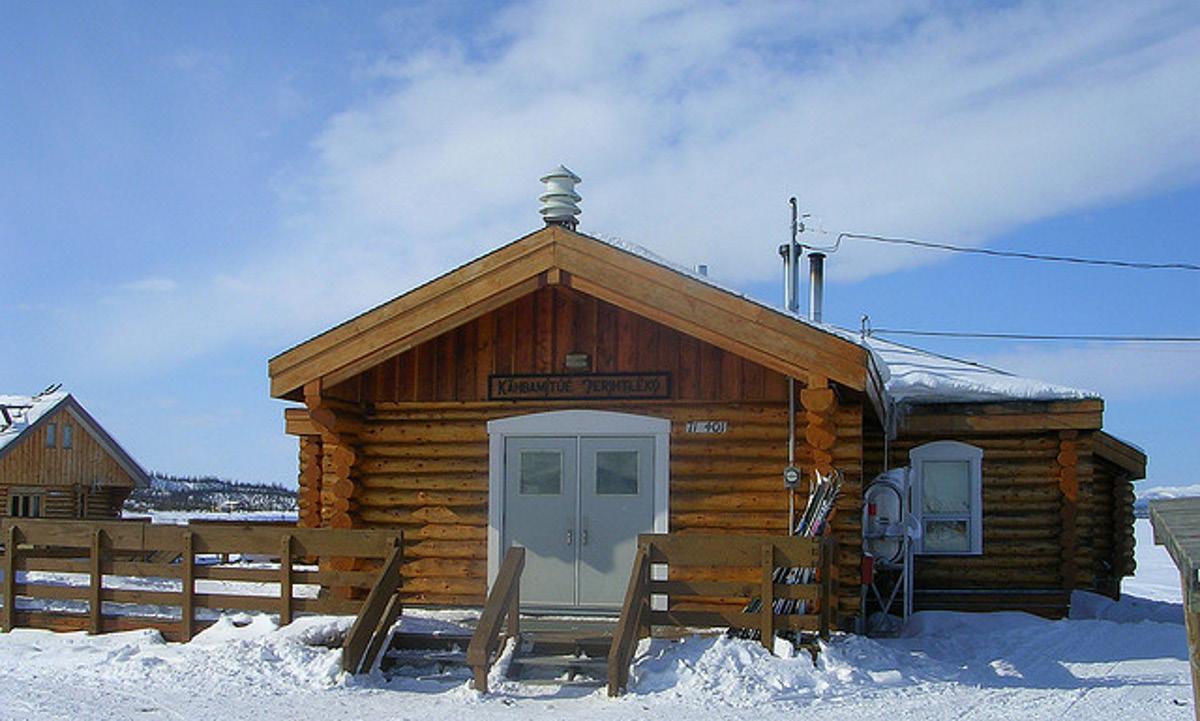
system and lead the learners to attain the wisdom that is the ultimate goal of education. It is only when theory and practice are genuinely integrat-
ed with the learning processes of students that they can effectively utilize knowledge for the common good, and become creative, innovative, indepen-

dent and goal-oriented. If this is achieved, then the education system can justifiably be proud of having attained its goals and objectives, which
include producing intelligent and wise individuals, who will help in nation-building, and the creation of a healthy, prosperous, happy, peaceful, and
self-sufficient society.
—Christopher Anyadubalu, PhD, is the principal at Colville Lake School. He can be reached at canyadubalu@sahtudec.ca
Peter McKitrick of Coral Harbour has earned his masters in Inuit education and wrote his thesis on reforming Nunavut’s education system.
He wants to finds ways for Nunavummiut to achieve their educational goals without having to move south.
“I just think there’s a lot of problems with education in the North that need to be addressed and worked at,” he said, referring to Euro-Western academic traditions imposed in Nunavut, such as the school calendar being based on agriculture, which he argues exacerbates poor attendance.
Geese hunting season and fishing in the fall would be examples of strong cultural practices in Nunavut that should be accommodated, he suggested.
“There’s also that problem where a lot of the school year should be preparing children for these seasonal activities that are going to be their way of life and should be designed around those activities,” he said.
He’s also opposed to the “authoritative style” of education delivery whereby students are expected to spend much of their day sitting and listening to a teacher.
“There’s a real missing critical thinking and independent thinking piece that’s very valued within Inuit culture and Inuit Qaujimajatuqangit… traditionally, we (Inuit) had a more facilitative leadership style. A community leader would be trying to provide the resources necessary for them to learn and succeed.”
Effecting change within the territory’s education structure is the hard part, he admits.
“I’m not sure how the change could come about because of how resistant to change the institutional apparatus is,” said McKitrick, 27. “It would be very hard to get things like the school year changed. It would have to start with the development of curriculum resources that are based around the seasonal activities and local traditional industries.
“The first step is you have to be dismantling the apparatus of systemic racism within a lot of the system,” he said, citing what he feels is too much funding devoted to providing southern educators with homes and travel to the south.
“That’s a huge budget that the school system keeps,” he adds. “Because they put so many resources toward accommodating southern educators, it feels like a lot of the time Inuit educators are left unsupported.”
The Government of Nunavut did not provide
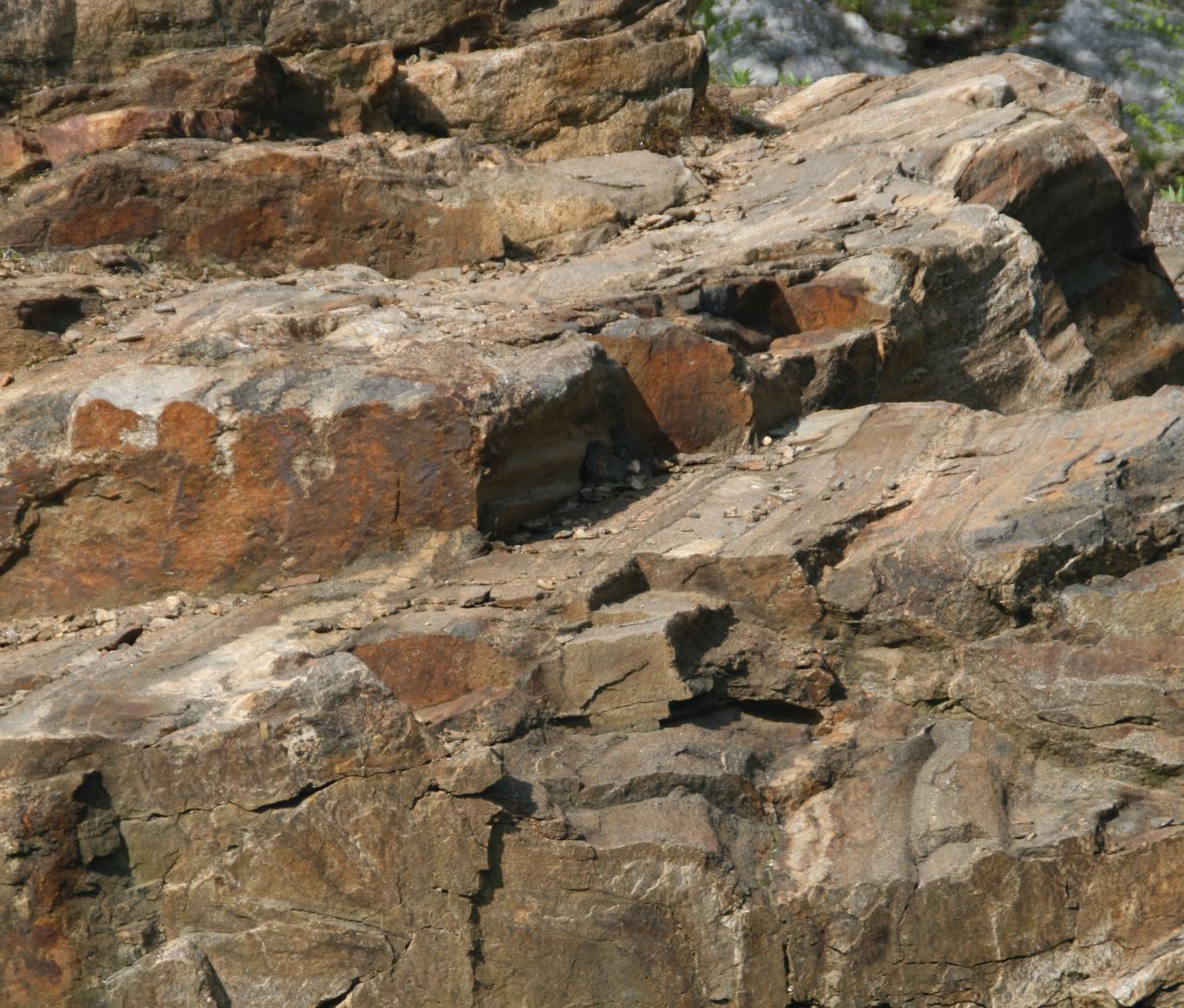
a response to questions on these issues prior to publication deadline.
Pay dispute


After graduating from university, McKitrick accepted a teaching position in his home community in September 2021 with the intention of making an impact, but he soon got the sense that the system wasn’t placing the value on him that he felt he deserved.
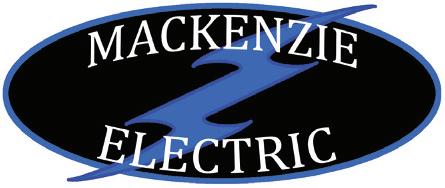
He was being paid an entry-level salary despite his eight years of university education, his masters degree in Inuit education and being a homegrown educator. He filed a formal appeal and he said he lost based on a deputy minister’s decision.
He finished the school year leading the students in his Grade 6 classroom at Sakku School until June. Then he resigned out of principle.
“The children were great. They were the easiest part of the entire experience. They came to school very often and it feels like they made a lot of progress and learned a lot,” he said. “But my classroom did not have a projector. For a while I didn’t have a working computer in that classroom. I was very limited on resources, and one of the things being that I was not actually given any curriculum to teach.”
A student support teacher who was supposed to assist him left unexpectedly during the school year, he said.
McKitrick also said he went to the Nunavut Teachers’ Association (NTA) to advocate on behalf of some of his Inuit colleagues who he said were performing full-time duties on wages based on benefits paid to substitute teachers, but he said the union’s response was to prevent the Inuit educators from acting collectively.
“I really thought that’s a silly policy, that’s really not what unions are supposed to be about,” he said.
He acknowledges that the idea of a teachers union specifically for Inuit educators is being discussed.
Qualifications measured
Justin Matchett, president of the NTA, said McKitrick was hired on a letter of authority (LOA), which is a process used when fully-qualified teachers cannot be found. Teachers in Nunavut and other jurisdictions are compensated on a pay scale based on years of experience and level of education, Matchett noted.
“Due to the teacher shortage and housing shortage, we are seeing more LOAs being offered to people for classroom positions and not as language specialists, and this is and should be a concern,” he said, noting that language specialists are an exception due to the
need for Inuktut speakers. He added that The NTA “worked very hard” to have those LOA language specialist included in the collective agreement to receive a language bonus of up to $5,000 a year.
“When it comes to advocating for our Inuit members, we have changed our election processes to increase Inuit representation within the NTA and we are currently hiring a new staff position in the NTA office designated for an for an Inuit employee to better represents and advocate for the concerns of our Inuit members,” Matchett said.
While having a masters degree is Inuit education is admirable, it does not replace a bachelors degree in education, according to Matchett.
“A teaching degree gives potential teachers the tools and skills they need to be most effective. You are taught about classroom management, learning styles, differentiated instruction and so much more,” he said.
The NTA encourages teachers hired on

LOAs to enroll in the Nunavut Teacher Education Program and will even cover tuition fees and 100 per cent of the person’s salary.
“Thus, they can become fully-trained teachers which benefits both them and their students, and to receive an increase to their pay as (bachelor of education) graduates,” said Matchett.
Since leaving his teaching position, McKitrick has landed a job with Nunavut Tunngavik Incorporated’s department of research, monitoring and evaluation. He’s the manager of research training there, which is an educator’s role, he notes.
He sees some reasons for optimism within the school system. District education authorities are reorganizing and taking stronger roles to reinforce the importance of Inuit culture within the curriculum. In addition, senior administrators who represent the status quo are beginning to retire and with that new ideas and approaches will flow, he adds.
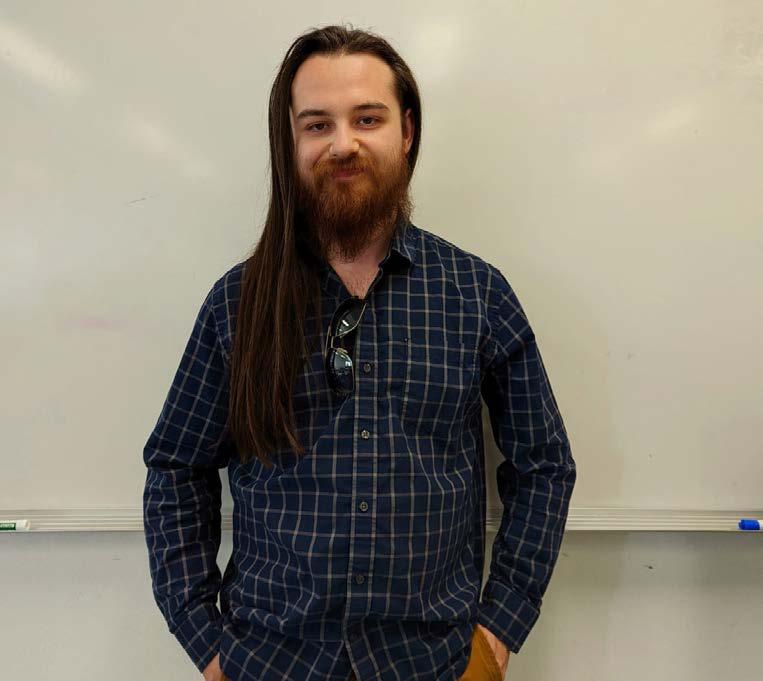
“I just think there’s a lot of problems with education in the North that need to be addressed and worked at,” says Peter McKitrick, who holds a masters degree in Inuit education from Lakehead University. Photo courtesy of Peter McKitrick
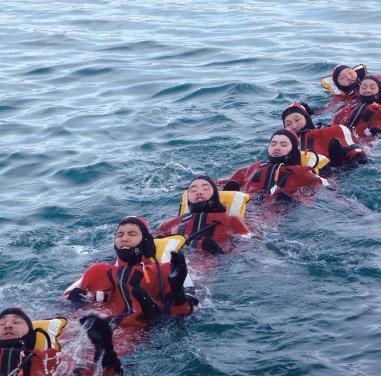
The sparse number of students enrolled in the Schools
North Apprenticeship Program (SNAP) outside of Yellowknife caused Kam Lake MLA Caitlin Cleveland to seek an explanation in the legislative assembly on Feb. 14.
There are only four such students outside of the North Slave region, she said.
“And so I’m wondering what has been the barrier to ensuring that there is a SNAP student in every NWT community or at least regional centre,” Cleveland asked R.J. Simpson, minister of Education, Culture and Employment (ECE).
Simpson pointed out that there are 24 SNAP students in total across the territory and 14 SNAP apprentices. He said after students graduate from SNAP, they can become an apprentice in the SNAP program.
Chief among the barriers, he acknowledged, is finding placements for the students.
“It is not always easy for employers and especially small employers to take on apprentices, although the government does provide funding for that… and I’ll say that we’ve had trouble attracting people in the trades for a while, and so that’s part of the issue as well,” said Simpson.
“You know, there’s been a big push over the past few years to get more students in trades. And ECE has been doing their part. The SNAP program recently got a revamp. There’s been new guidelines and handbooks. There’s been additional outreach.”
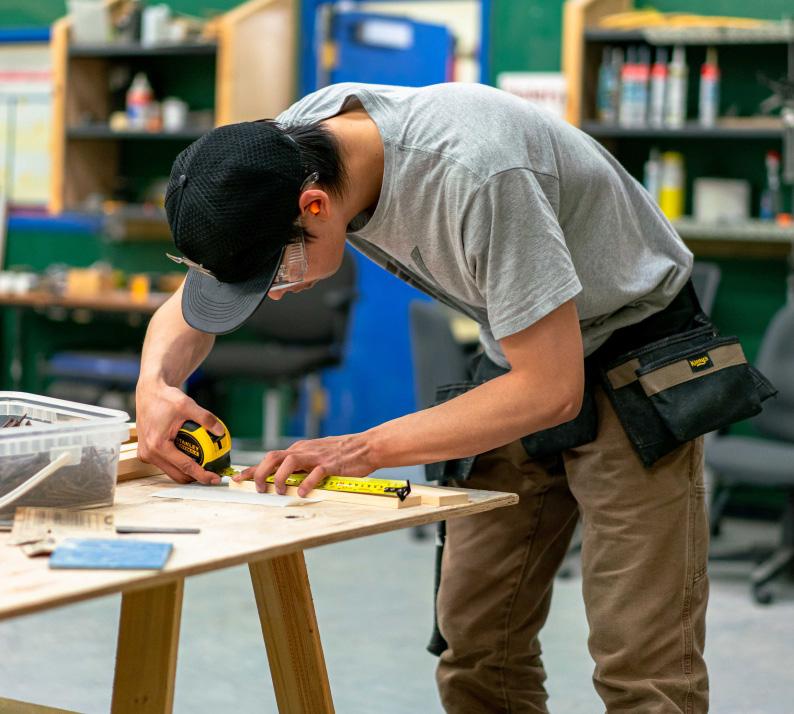

Simpson said those are among the efforts made recently in an attempt to break down the barriers and increase the number of SNAP students.
Cleveland conceded that the limited number of employers in the NWT poses a challenge and “it is a significant investment to be able to take on a high school student in this kind of capacity.” However, she suggested that the entire territorial government could be put to use.
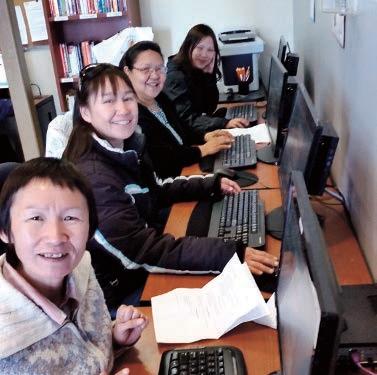
”So is ECE willing to commit to ensuring that a youth from every NWT community, or at least region, is enrolled in the SNAP program before the end of the 19th Assembly?” she asked Simpson.
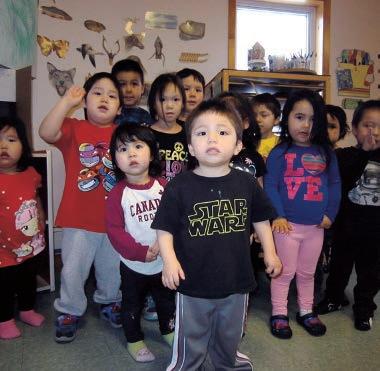
Simpson replied that students and employers need to come together to work on this, “and we are making efforts.”
“There have been advances in the past few years; we’ve seen the numbers increase. And we are now working as a government to explore how we can get SNAP students into employment with the Government of the North-
west Territories and working with my colleague from the Department of Infrastructure. The Department of Finance is involved because, you know, hiring, it needs to conform to the collective agreement. So we are taking an all-of-government approach to this and I’m happy to see it’s invigorating,” Simpson said.
Cleveland returned to her earlier observation that SNAP students and apprentices are rare outside of the Yellowknife region. She acknowledged that there’s a higher concentration of students in the capital as well as more employers “And I get that the minister also can’t force the govern-
ment to do anything. But an example is Housing, which is willing to put an apprentice in their contracts — there are departments out there willing to partake in these opportunities. And so I’m asking the minister if he will especially work with ministers of Infrastructure and Housing to tell them about the SNAP pro-
gram because yesterday (Feb. 13) I heard… in an exchange between a member and the minister, that they wished there was an opportunity before the apprenticeship program. This is it, Mr. Speaker. So I’m asking if the GNWT will be one of its own clients and partake in the SNAP program?”
Minister says efforts are being made to have GNWT take on more apprentices amid limited private-sector employersThere are 24 Schools North Apprenticeship Program (SNAP) students in total across the territory and 14 SNAP apprentices, numbers that Kam Lake MLA Caitlin Cleveland wants to see increase. Education, Culture and Employment Minister R.J. Simpson said the territorial government is making efforts to that effect. Photo courtesy of Qikiqtani Industry Ltd.
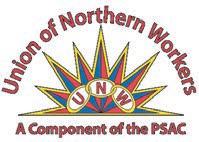
Wrestling conjures images of fierce grappling on the mats, but it’s an avenue to help shape more well-rounded human beings, said Chris Crooks, coach of the highly successful wrestling program in Cambridge Bay.
“So much more of what we do is mental — everything from financing to family planning, to education, to mental health to dealing with trauma — so that creates success; wrestling is a medium,” said Crooks, who introduced the sport to the community in 2015.
A retired teacher with experience as a wrestling, cross-country, track and rugby coach, he accepted a job at Kullik Ilihakvik on a two-year contract, which has now extended into an eighth year.
He said the wrestling program aims to build resilience in participants and to instill the “ability to talk about problems and realize that you do have some choices, as difficult as they may be.”
It also provides them with the opportunity to travel for training and competition, to see different things and get a better understanding of the world, he said. In addition to gruelling training and weight cutting during stays in the south, the young athletes engage in recreational activities such a horseback riding, go to museums and science centres and do some public speaking.
Crooks said he was thoroughly impressed by listening to Nunavut wrestlers take the stage as panellists at a high school in Hamilton, Ont. They discussed life in Nunavut, from the unique aspects of geography and culture to the solemn topics of crime, domestic violence and suicide.
“Some kids who I’d never heard speak were speaking amazingly well, and there were tears in the audience. That ability to be able to talk in a large group without shame about what your life is like is huge,” said Crooks, who added that the wrestling program has lost some young athletes to alcohol poisoning and suicide.
Building from scratch
When he launched the sporting activity, there was nary a wrestling mat in the community. Consequently, the initial training sessions
consisted of a lot of games, Crooks recalls.
“I just sort of opened it up to everyone,” he said of the early days, adding that dozens of youth ages six to 16 showed up.
Although numerous grapplers showed promise, he spotted his star protege, Eekeeluak Avalak, on the playground. Avalak was 11 years old at the time, but Crooks said he could tell Avalak was a “phenomenal athlete.”
“I knew he had the physical capabilities,” he remembers. “When I took him to Iqaluit (for territorials), he won pretty handily and I realized at that point that he also had the mental abilities to become an outstanding wrestler.”
Avalak went on to earn the silver medal among competitors under age 17 in the 55 kg weight class at the Canadian Wrestling Championships in 2019. After winning Nunavut’s first gold medal ever at the Canada Summer Games last August, Avalak gave credit to his teammates and “my father figure right here, my coach,” referring to Crooks.
Cambridge Bay’s Kristen McCallum also has a lot of positive things to say about the sport and the opportunities it has afforded her.
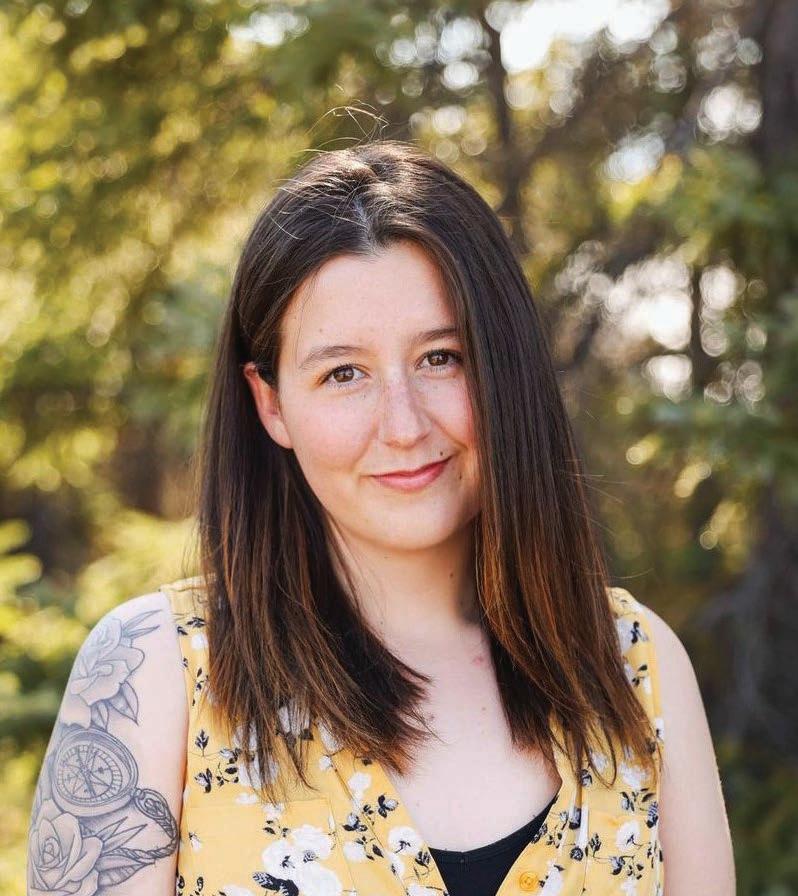
“The wrestling program means so much to me, not only on the mat but in my personal life as well,” she said. “We’re all comfortable with each other. I created a special bond with everyone and they will forever be family. Wrestling has helped me learn so much about myself: I learned to be patient, to have more self-control, to be open-minded, to learn and practice new things.
“It opened my mind to know that I’m capable to do anything I set my mind to. I recently lost a best friend to suicide. Wrestling became a safe place for me, it allowed me to take my frustration, hurt and sadness out in a healthy way, my coaches and teammates still support me,” said McCallum.
And the sport has continued to grow. After-school wrestling sessions have spawned for students in Grades 1 to 3 and Grades 4 to 6. Fridays are designated for females only.
Territorial duties
Outside of building the Cambridge Bay program, Crooks stepped up to take over Wrestling Nunavut, the territorial board overseeing the sport, in 2018-19 with help from his wife and son. The previous board members had resigned and Wrestling Nunavut faced collapse without new blood.

Crooks also mentors adults in several other Nunavut communities who serve as wrestling coaches. They use videos that Crooks supplies to get a better understanding of the technical aspects of the sport.
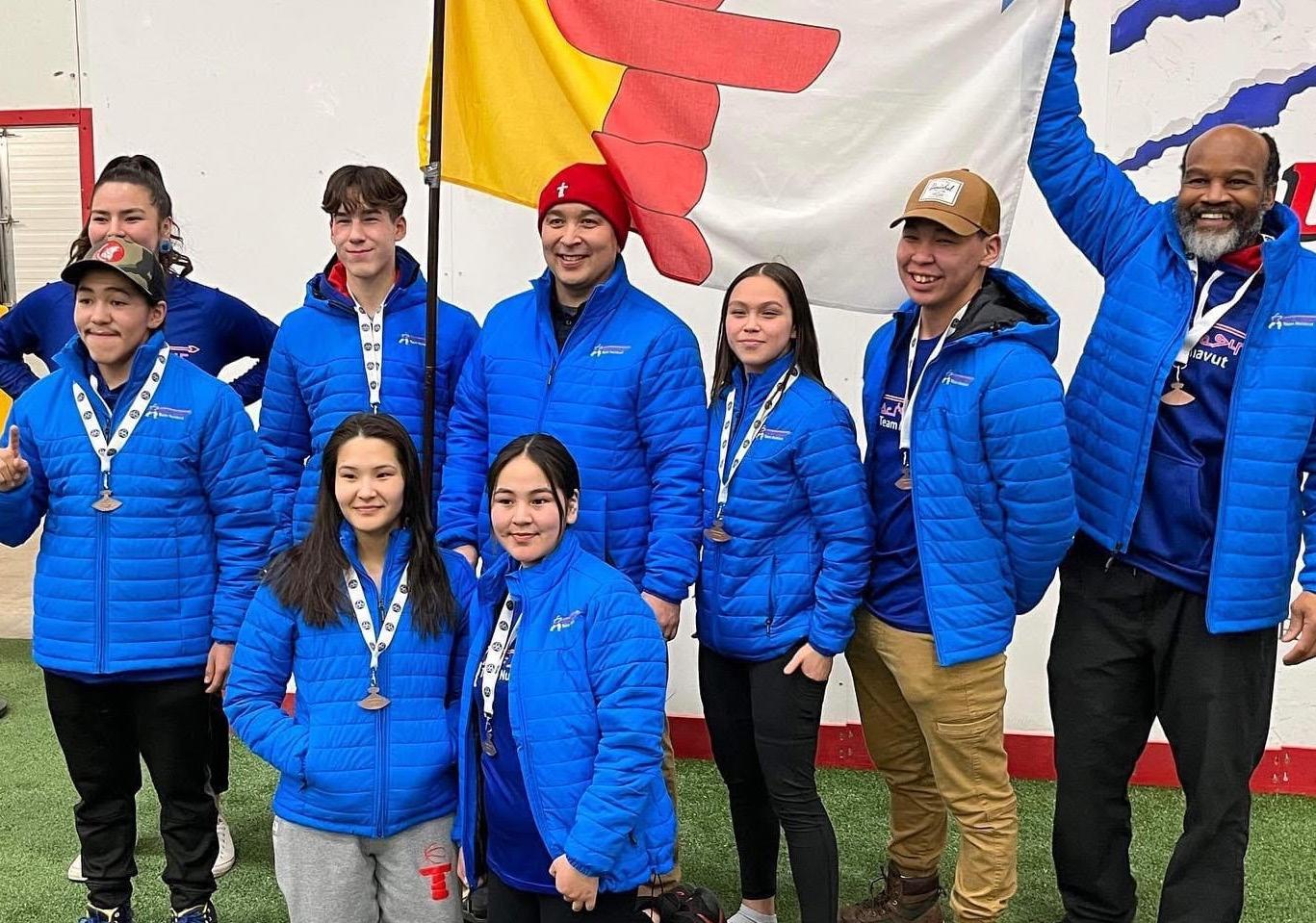
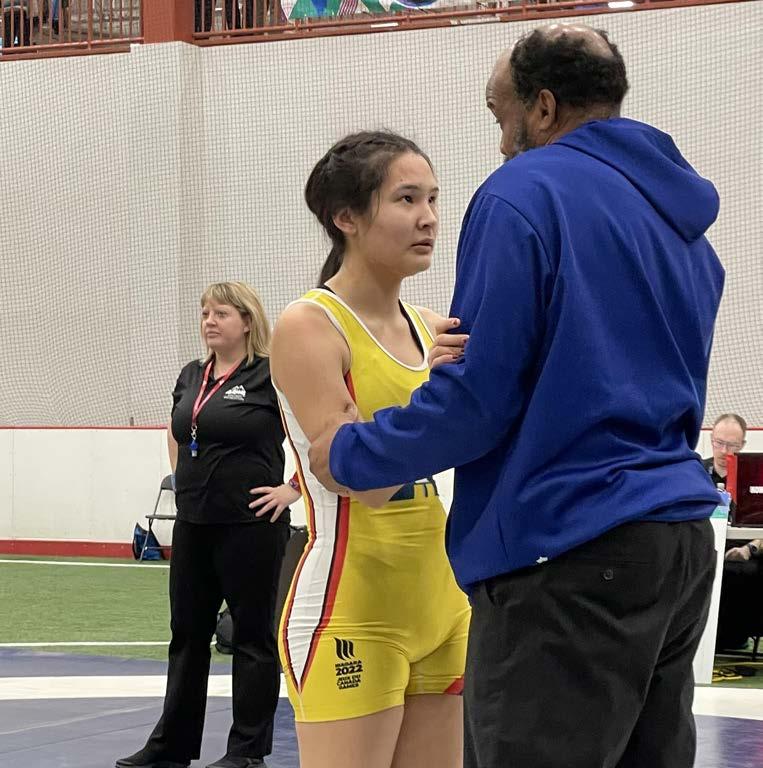
He’s planning to spend the next year trying to ensure that the Cambridge
Bay wrestling program and Wrestling Nunavut can remain sustainable after he moves back to the south for the long term.
Avalak attests to how Crooks’ tutelage has left an indelible mark.
“Chris has made a huge impact on me, not only in wrestling but in my personal life as well,” said the 19-year-old. “As a child, I was easily triggered, and I would lash out verbally and physically. Since he introduced me to wrestling, I was able to channel those tantrums through wrestling, and it helped me ease my temper. Because of Chris, I was able to travel to almost every province and territory to compete and train in the sport of wrestling. He also helped me get into a high school to upgrade some classes to get into university. He continues to play a huge role in my life, and I wouldn’t be half the person I am today.”
Janet Kochon never let go of her dream to become an educator, and even though the path has been full of twists and turns, she’s fulfilling that aspiration in Colville Lake.
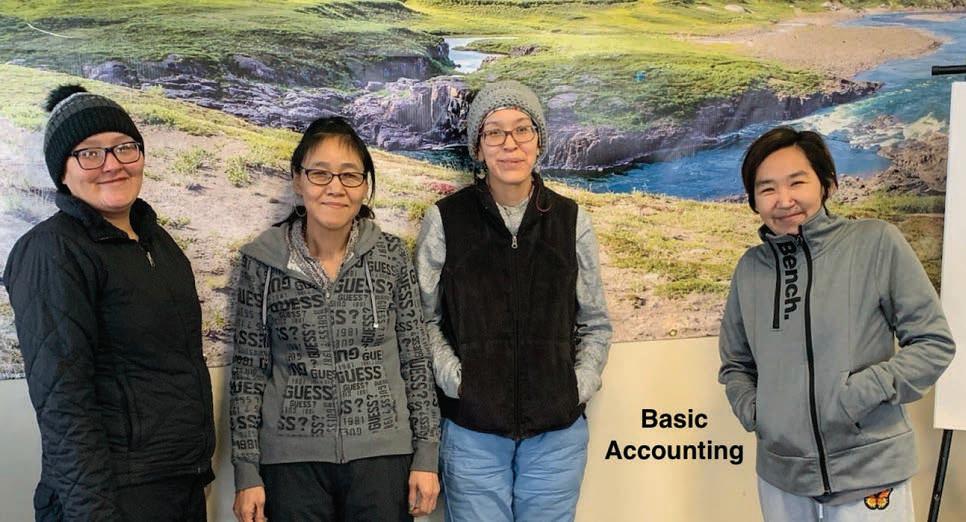
“I always wished to be a teacher,” she said.
Most of her own early education came on the land in Fort Good Hope, where she grew up in the 1970s.
Her father was a trapper. She and her eight siblings would accompany their parents on lengthy expeditions into the bush “and learn the ways of our ancestors on the land,” she recalled.
In the 1990s, she upgraded her academic education in Yellowknife and then began working as a classroom assistant at the Aboriginal Head Start preschool in Ndilo.
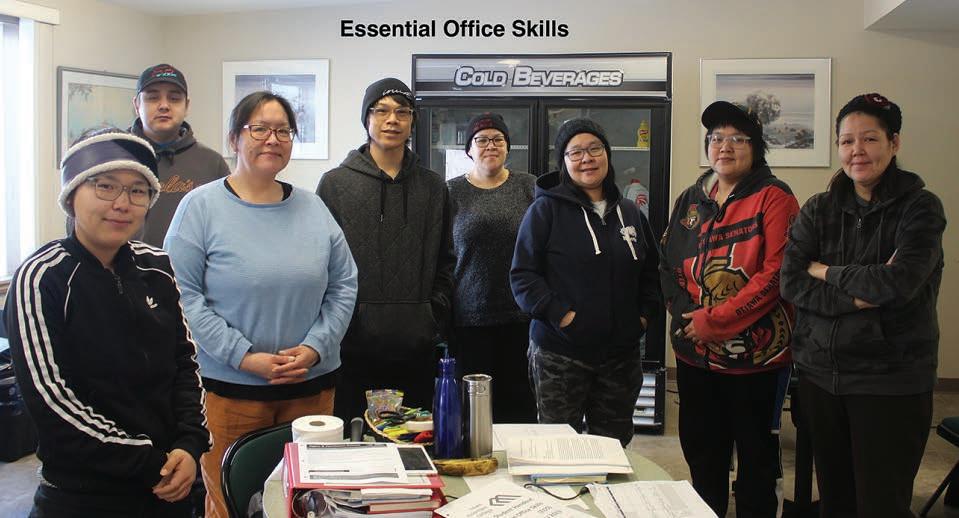
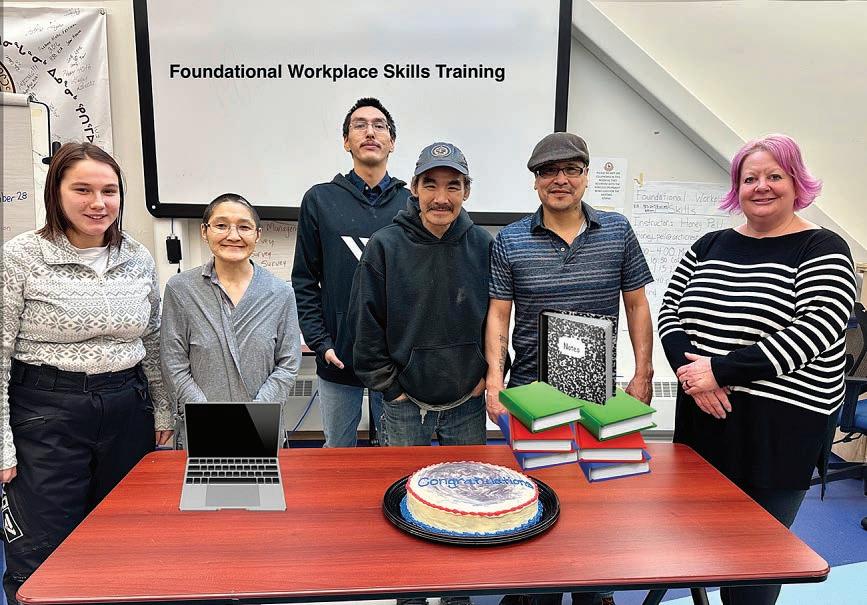
In the early 2000s, she continued moving toward a teaching career by enrolling in the Teacher Education Program through Aurora College. But as a single mother with three children and bills to pay, she also saw the allure of a steady income at the Ekati diamond mine, where she accepted a job and quickly climbed the ladder to become supervisor of housekeeping services.
Sixteen years went by, along with shorter stints at Snap Lake and Diavik diamond mines.
Then a conversation with her cousin in Colville Lake changed her perspective, and Kochon decided to relocate to that small Sahtu community, population close to 150. She
didn’t have a job lined up, but the preschool co-ordinator eventually approached her and offered her a position. She later was hired at Colville Lake School as a student support assistant.
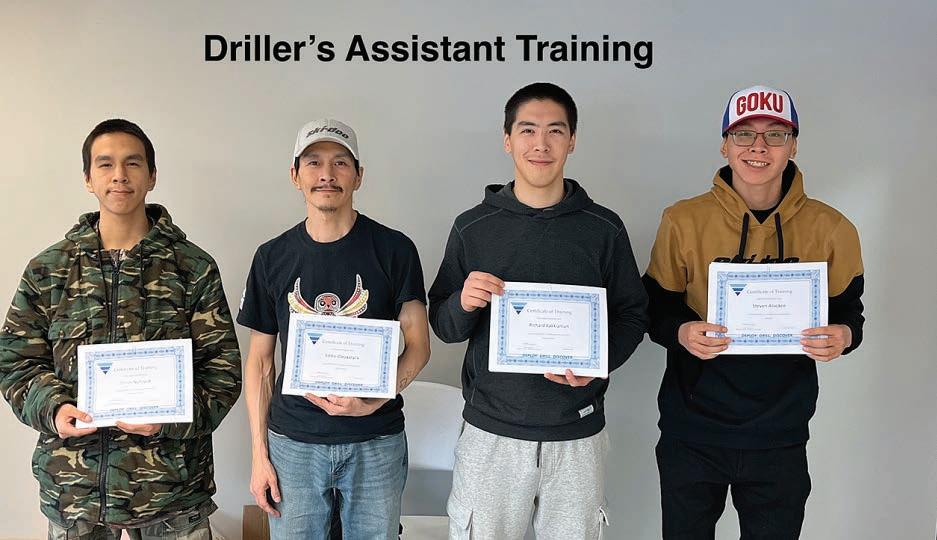
Last September, she jumped at the chance to be the junior kindergarten to Grade 1 teacher. Although she’s in a mentoring role, she still had much to learn, she admitted, citing report cards and correcting the youngsters’ misbehaviour as examples.
Another helpful resource has been going online.
“I’m so thankful for the internet, where I get lots of information,” she said, adding that a colleague who teaches Grades 2-4 also gives her helpful advice.
When it comes to keeping the energetic youngsters in line, Kochon has introduced a “three strike” approach to discipline and, in worst cases, makes offenders sit out gym class, which is one of the most popular activities.
She also makes a point of rewarding good behaviour.
“By giving them stars, they go home and tell their parents they got a star today for cleaning up,” she said.
Her students are learning numbers, shapes and a sense of self, among other lessons.
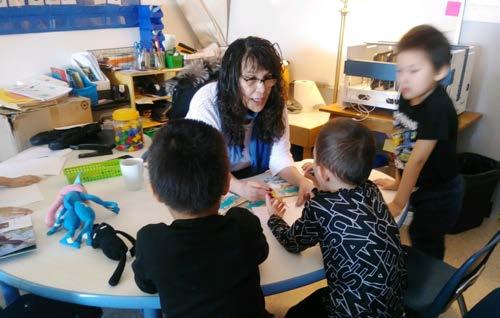
“I have two eyes and one nose,” she said of a typical exclamation from her students.
They love making art too, she added.
“They’re very creative. It just surprises me, all the things I’ve seen and the change from when I started to what I’m seeing now,” she said.
Still possessing a thirst for higher-level credentials, Kochon registered in a couple of courses through NorQuest College in Edmonton a few years ago, passing both.
“So I did all kinds of stuff just to be where I’m at right now,” she said.
She’s also determined to be accepted at a university and attain her masters.
“I have a passion for teaching,” she said. “It’s all coming together now.”

Rebecca Plotner has witnessed many changes in the education system from her days as a student in Dettah and, many years later, serving as chair of the community’s district education authority.
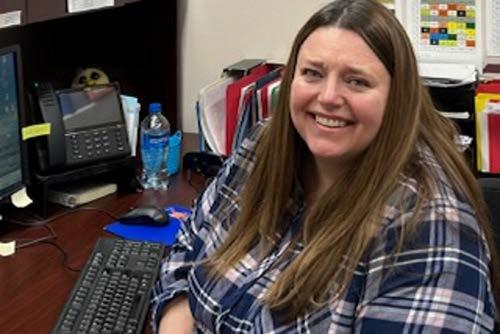
“There’s a big difference. I’ve seen a huge shift… especially out in Dettah. It’s a lot more interactive. The students have a lot more say in their education — not to say my education was bad, I feel like the experience was just different and the teachings are different,” she said. “They’re learning different skills (today); they’re learning how to do a lot more research at a younger age.”
Plotner points to a videography project at Kaw Tay Whee School that involved
Western Arctic Moving Pictures (WAMP). Students, who number close to 30, researched related audio and video equipment, learned about animation, shooting and editing video and how to do voice-overs.
“They had to pitch their ideas to the teachers and show them their research and what would be best for them. I feel like those are very good transferable skills for when they get older. So it’s a very different learning environment from when I was in school there,”
Plotner said.
She has been a member of the school board for close to a decade and has been chair of the DEA for just over half that time.
“I’ve always really put an emphasis on education and schooling and I have a lot of nieces and nephews who still go to school at Kaw Tay Whee School,” she said. “It was a good way for me to be involved in education and my community, and being able to give back to my community, in a way. I think it’s a good opportunity to have a positive impact on the students in our school and being able to oversee the different programs
that the school is able to provide — just being there for the youth and the students and our staff.”
Elders have resumed visiting this school year as pandemic measures have subsided. That has led to fish-scale art and studying traditional meats being among recent activities.
“On-the-land initiatives have always been a really high priority for me,” said Plotner, who holds a bachelor of science in biochemistry and molecular biology from the University of Northern British Columbia.
In teaching the Wiliideh language, the school also goes “above and beyond” the GNWT’s minimum requirements for language programming, she adds.
Plotner offers high praise for the educators at Kaw Tay Whee.
“We’ve got a really good staff,” she said.
She tries to stop by the school every couple of months to provide treats for the students. In some cases, the children have grown food for themselves. They used hydroponic pods and plots in the Dettah community garden to produce vegetables like peppers, carrot and potatoes that
are used in the lunch program.
“So it’s really rewarding for them,” said Plotner.
Among special events at Kaw Tay Whee, Plotner said Breakfast with Santa and the associated skits ranks among her favourites. She also enjoys the Super Secret Event at the end of the school year, which always involves surprises for the students that staff have planned in advance.
As the Department of Education undertakes a process of curriculum renewal — transferring from Alberta’s curriculum and associated testing methods to modelling B.C.’s — Plotner expresses support for this new approach.
“It is very much linked to Indigenous teachings as well, and the fact that it’s knowledge-based learning… from our perspective it is a good thing,” she said. “There’s obviously going to be hiccups and there’s going to be things that we all need to work together on, but a lot of the other DEAs and DECs (divisional education councils), we’ve been collaborating pretty well over the past couple of years. I think it will just build that relationship between all of us as we move forward.”
I think it’s a good opportunity to have a positive impact on the students in our school and being able to oversee the different programs that the school is able to provide — just being there for the youth and the students and our staff,” Rebecca Plotner says of her near-decade of service with the Dettah District Education Authority.
Photo courtesy of Rebecca Plotner
After 32 years of teaching in the Kivalliq region, Trudi Bruce is retiring come June.
She’s been in the profession long enough that some of her former students now have children of their own attending Rankin Inlet’s Leo Ussak School, where Bruce is vice-principal.
Her daughter Kayla earned her bachelor of education degree and is teaching at Simon Alaittuq School in the same community.
“I was super proud,” Bruce said of her daughter’s academic achievement and career path, adding that they periodically exchange thoughts and ideas about their work.
“But I’m going to be honest, sometimes I feel like I’m learning more from her than she is from me,” she said. “She’s very current and up to date… our conversations contribute to my professional growth and I’m sure they contribute to her professional growth as well. We have that in common so it’s fun to have those conversations.”
She hopes Kayla finds her career just as fulfilling as she has, loving coming to work every day.
“Just being there in the classroom connecting with the students. The little kids are enthusiastic, it’s absolutely fun,” Bruce said of her experience. “I have had the absolute pleasure of working with so many amazing teachers. That’s kind of been a highlight, that collaboration and cooperation.”
However, having witnessed some of her colleagues leave for other sectors, she said she wishes that her daughter will be “fully supported to ensure her success” as a new teacher, in terms of class size and being provided adequate resources.
Her step-mother was also an educator, an influential figure she refers to as her “inspiration.”
“So there’s three generations as teachers,” she said.
Stayed far longer than planned
Bruce’s teaching career in the North began in 1991 after she earned her bachelor of education from the University of Manitoba. Her intention at that time was to spend 10 months in Rankin Inlet, but then she met the man who would become her husband and settled down to start her own family, although she spent time leading classrooms in Baker Lake and Coral Harbour as well.
She’s admittedly observed a decline in Inuktitut over the past three decades. In the early 1990s, Inuktitut was the first language
Above: Trudi Bruce in 1991, her first year teaching at Leo Ussak School in Rankin Inlet. She’s pictured with students identified only as Joanne and Marnie. Right: “It’s great to see this young generation coming in and teaching. They’re very good at it and it’s exciting. To see that happening is amazing,” said Bruce, vice-principal at Rankin Inlet’s Leo Ussak School. Bruce retires as of June. Photo courtesy of Trudi Bruce
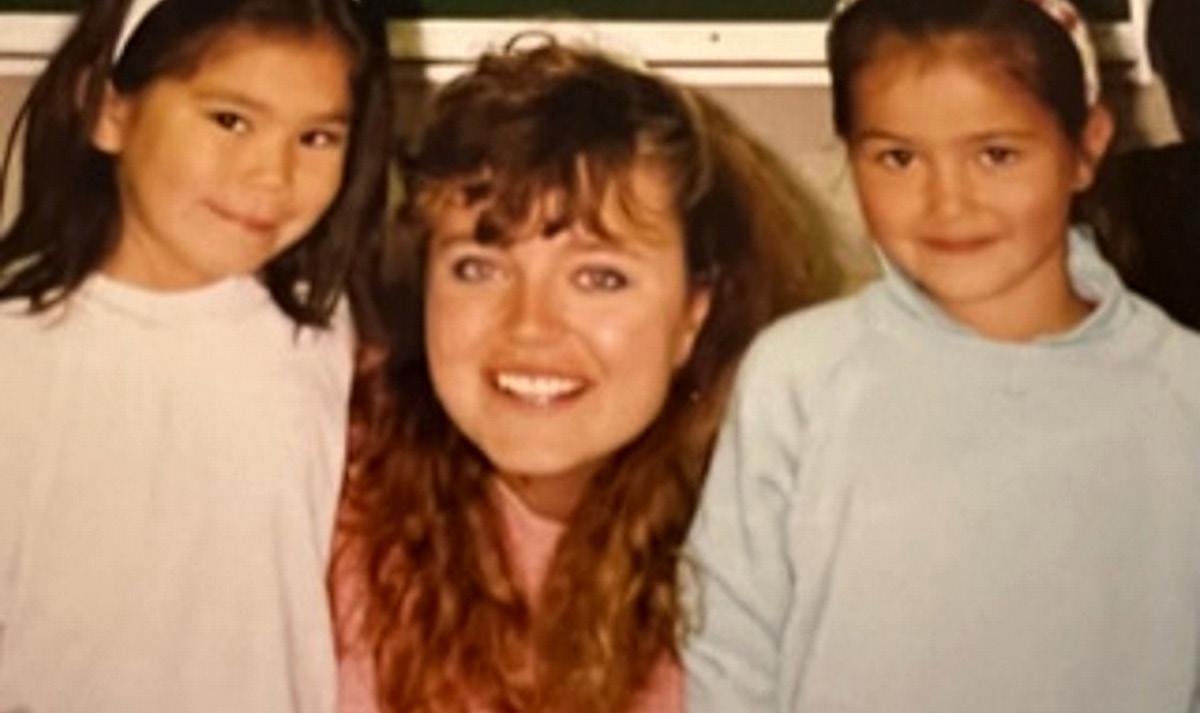
for many of her students. Today, she said it’s generally their second language.
“Ideally, it would be wonderful to have students speaking Inuktitut more,” she said.
On the other hand, she said there are many Inuit educators at the school who are making important contributions.
“It’s great to see this young generation coming in and teaching. They’re very good at it and it’s exciting,” she said. “To see that happening is amazing.”
Bruce, who earned the Excellence in Teaching Award through the Nunavut Teachers’ Association in 2018, knows her life is going to change significantly when June rolls around and her retirement is official.
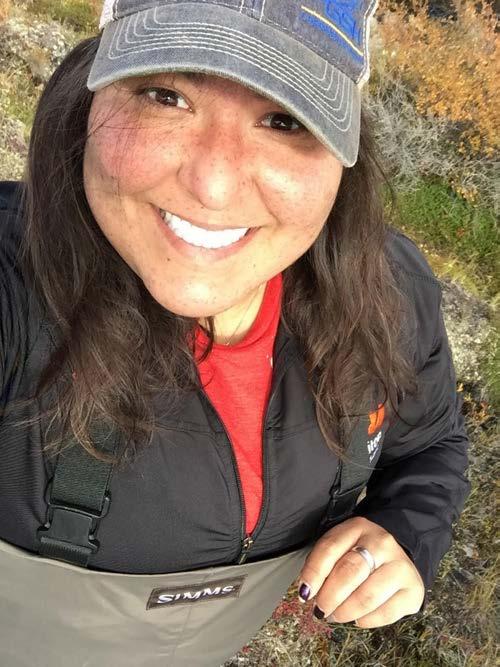
“I will admit I’m nervous because essentially all I’ve ever done is go to school. I went right from high school to university, from university — I was 23 years old — I came up to Rankin Inlet and started teaching, so I’ve never done anything but work in schools as a student and as a teacher,” she said.
“Yesterday I was in the hallway and it was dismissal time. The bell went and the kids were all coming out into the hallway
and it’s always just a little bit chaotic… and I was standing there and what occurred to me was that I’m really going to miss this.”
Her daughter has plans for her mom to come and volunteer in her classroom in the years ahead as Bruce will remain in Rankin Inlet.
Because she derives such joy from teaching others to read and write, she may volunteer to assist adults with upgrading those skills, she muses.
In her letter notifying her employer of her impending retirement, she wrote, “This job and this place has given me a wonderful life.”
“It’s definitely been a good ride,” she said.
‘This job and this place has given me a wonderful life,’ says Rankin Inlet’s Trudi Bruce
Saalia Pijamini is fluent in speaking, reading and writing Inuktitut. Those are skills that she looks forward to teaching students in classrooms in the years ahead.
“Lately there’s been more Inuit students graduating from NTEP (Nunavut Teacher Education Program), but when I was in school, there wasn’t many Inuktitut teachers and that was one of the reasons why I wanted to go into teaching as well,” she said.
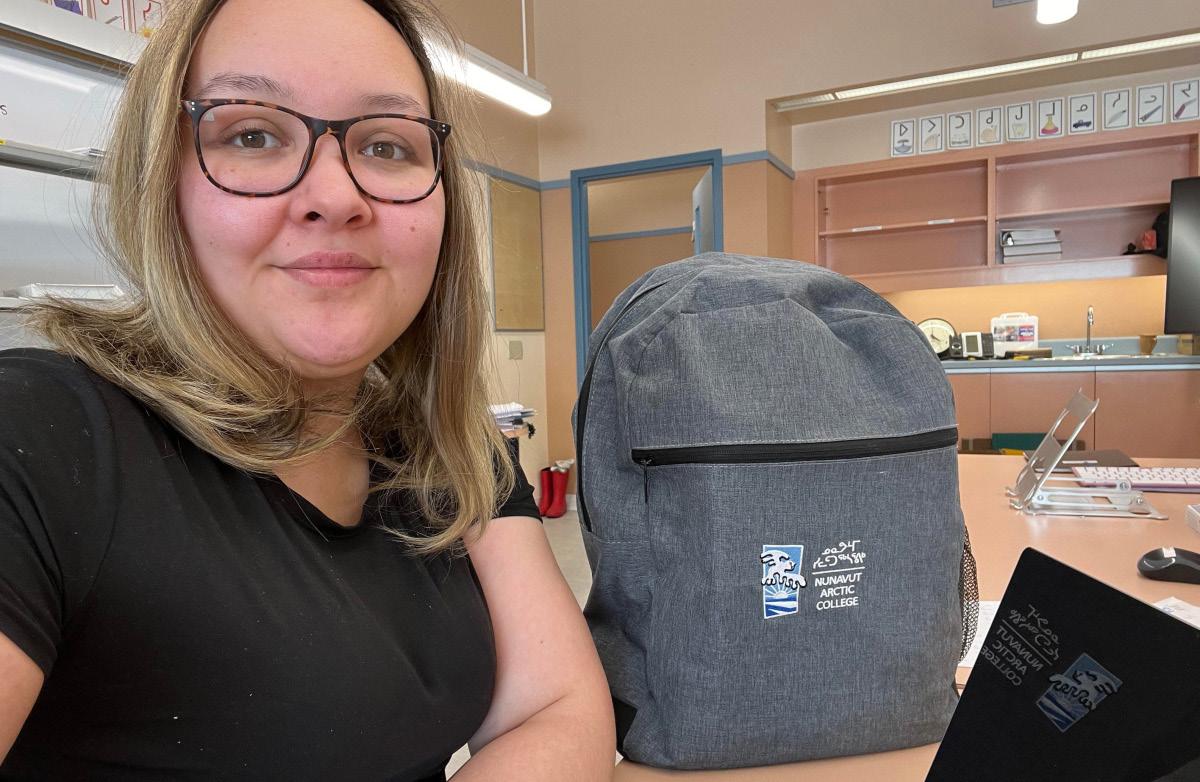
Currently in her second year of the four-year NTEP, Pijamini said she’s always enjoyed school and has long had a desire to become a teacher.
“I like learning, and I’ve always looked up to my teachers. I have a few teachers that I’m still in contact with, that I keep in touch with regularly. They’re the ones that have motivated me and inspired me to become a teacher,” she said.
Her cousin Monica was another positive influence as she earned her NTEP degree at the Nunavut Arctic College campus in Cambridge Bay more than 10 years ago.
“She was very encouraging with taking the program,” she said.
Pijamini, who hails from Grise Fiord, is pursuing her studies in Iqaluit, although most of her courses are online. She has six courses on her plate. Sciences, such as
learning about chemistry, biology and astronomy, are her favourite areas of study. She finds English the most challenging course.
“There’s a lot of good resources with the courses that we’re taking, and a lot of our courses try to incorporate the Inuit Qaujimajatuqangit principles,” she said.
Outside of daily lectures, she estimates that she spends an average of an hour or two each day completing her homework.
Another important use of her time is spending it with her two daughters, ages three and five.
“Luckily my girls have a spot at the daycare, so when I’m done with my classes, I still have time to do my homework before I pick them up, so it hasn’t been stressful,” she said. Scholarships have also made life easier. Pijamini earned financial support through the Atuqtuarvik Corporation, Baffinland Iron Mines, the Qikiqtani Inuit Association, Nunavut Tunngavik Foundation and Indspire.
“It’s such a big difference. It relieves so much financial stress because being a student, our funding is not that great with FANS (Financial Assistance for Nunavut Students),” she said.
Upon finishing her second year of NTEP, she’s planning to jump right into work as a summer student with the Government of Nunavut.
Last summer, the Department of
Finance provided her a job. Decorated student Pijamini was a strong performer in high school, earning math and science awards along with the Governor General’s Academic Medal when she graduated.
After taking a year off, she enrolled
in the Nunavut Sivuniksavut (NS) college program in Ottawa. She completed the first year, but only after going home to help look after her mom in a time of need.
“School was still there,” she said of her choice to put family first.
Pijamini said she found NS to be
beneficial.
“There was a lot I didn’t know about our Inuit culture, so I learned a lot about our history and language,” she said. “With my school in Grise Fiord, I didn’t know much about essay writing in English, so I learned a lot of that when I took Nunavut
Having participated in numerous sports while growing up, Hannah Courtoreille couldn’t envision herself in a career that was not intertwined with athletics.
She’s in the fourth year of a kinesiology degree at the University of Calgary, en route to making that goal a reality. Courtoreille was born and raised in Hay River until age 14. Then her family moved to Yellowknife when she started Grade 10 at Ecole St. Patrick High School. She graduated in 2019.
She credits her NWT coaches — Heather Coackwell, Kim Wilkens, Brenda Dalton and Ed Dizon — for inspiring her passion in sport and health. She adds that St. Pat’s teachers Rob Hart and Michelle Thoms were tremendous supports for her “overall well-being and success at school.”
She managed to get good grades in high school, “but it came with a lot of time and tears.”
“I remember spending a lot of time at the kitchen table late into the night, even falling asleep there. I learned in high school that I need to take initiative with my own learning as I had teachers that just did not care. I learned how to study
from the textbook, within study groups, and making my own flashcards,” she said, adding that both of her parents hold degrees and were instrumental in her academic success and her zeal for going to university.
Sports remained a blissful focal point. She was a figure skating silver medallist in the team event at the 2018 Arctic Winter Games and earned a silver in the triple jump at the 2017 North American Indigenous Games. She also participated in soccer, basketball, volleyball and badminton.
Upon arriving at the University of Calgary, she quickly joined the rowing team.
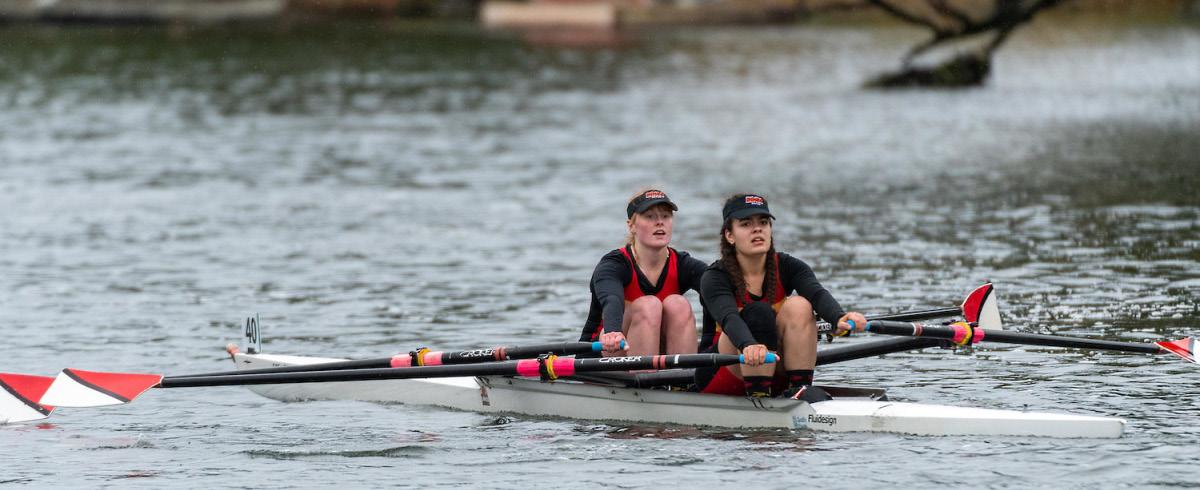
“I wanted to try something different and fell in love with the sport,” she said. “My mom was a rower growing up and she has always shared stories with me about it, which influenced me to try out for the team. I have been to a number of regattas in Calgary and Victoria these past two seasons. I also had the opportunity to go to San Diego last spring where my boat achieved silver in our category.”
Courtoreille met a professor who heightened her interest in kinesiology, partly by explaining that the field isn’t all about physiology and performance.
“She gave me the in-depth understanding on how we can support sport participation as a coach and applying leadership skills to everyday practice,” she said. “(She) has been a great support within my career as she greatly values her students’ learning. I will forever be grateful for her.”
Now in her senior year of university, her classes aren’t as gruelling as in previous years when she would have labs to do in addition to attending lectures, she said. She compares it to a 9-to-5 job now. She has filled a few volunteer positions that take up another two to eight hours per week, but she said she enjoys it. In addition, she acts as a community ambassador on campus, providing support to first-year students.
Ultimately, she plans to become an athletic therapist. That won’t happen until she completes a three-year certificate program at Calgary’s Mount Royal University, starting this fall.
“I would love to work with a professional sports team once I’m certified,” said Courtoreille. “I also want to become a coach as another line of work as I love supporting athlete development. I haven’t decided which sport to do, but since Yellowknife is building a rowing club… potentially in rowing? We’ll just have to see.”
Post-secondary students are faced with expenses for tuition, books, accommodations and food while getting the education they need to chase their dream occupations.
Below is a road map to potential financial aid for students with aspirations to enter university, college or the trades. Those interested in applying should contact the organizations offering the awards to get additional details.
UNW – Josie Gould Scholarships
Value: $3,000
Available: 10 with two reserved for first-year students
Organization: Union of Northern Workers
Eligibility: Scholarships are open to UNW members in good standing as of the last working day in June of the current year; and current, retired and deceased members’ relatives whose permanent place of residence is Canada. No applicant can be awarded a scholarship in two consecutive years. Must submit a three-page essay on universal basic income and a completed application form.
Deadline: June 30 at 5 p.m.
Smitty Muyers Memorial Scholarship
Fund
Value: Up to $1,500
Available: Varies
Organization: Yellowknife Elks Lodge #314
Eligibility: Applicants must be Canadian citizens or a landed immigrant and a resident of Yellowknife, Ndilo, Dettah, Behchoko or the Ingraham Trail and enrolled in a recognized post-secondary institution. Applicants above the age of 25 must be members in good standing of either the Yellowknife Elks Lodge #314 or Yellowknife Royal Purple #143.
Deadline: Aug. 15
Marion Slaven Memorial Scholarship
Fund
Value: up to $1,500
Available: Varies
Organization: Yellowknife Royal Purple #143
Eligibility: Applicants must be Canadian citizens or a landed immigrant and a resident of Yellowknife, Ndilo, Dettah, Behchoko or the Ingraham Trail and enrolled in a recognized post-secondary nursing or medical program. Applicants above the age of 25 must be members in good standing of either the Yellowknife Elks Lodge #314 or Yellowknife Royal Purple #143.
Deadline: Aug.15
Northwest Territories Power Corporation Scholarship
Value: $1,000
Available: One per community that the power corp. services
Organization: Northwest Territories Power Corporation
Eligibility: Applicants must be high school graduates of the NWT and enrolled in a postsecondary institution.
Deadline: Sept. 30
KeTe Whii/Procon Joint Venture Scholarship
Value: $1,500
Available: Five
Organization: KeTe Whii and Procon Joint Venture
Eligibility: Applicants must be beneficiaries of the Lutsel K’e Dene First Nation, Tlicho Government or the Yellowknives Dene First
Nation and be enrolled full time in a postsecondary educational institution.
Deadline: Oct. 15
Don Jossa Architectural Scholarship
Award
Value: $1,500
Available: Up to three
Organization: NWT Association of Architects
Eligibility: NWT high school graduates, or students in their final year of high school, who have a minimum of four years of schooling in the NWT and will be pursuing architectural studies in a field related to architecture.
Deadline: May 1
Linda Gray Memorial Award
Value: $500
Available: Two
Organization: The Tree of Peace Friendship
Centre
Eligibility: Applicants must be Indigenous residents of Yellowknife, Dettah or Ndilo and attending a post-secondary institution in the fall.
Deadline: June 30
Royal Canadian Legion Alberta-NWT
Command Bursary
Value: $1,000
Available: Two
Organization: Royal Canadian Legion and Aurora College
Eligibility: For any person “who is serving or has honorably served,” or their dependents, including children, grandchildren and great grandchildren. Based on financial need and satisfactory academic achievement. A bursary may be awarded at any stage of a College or University program for the 2021-2022
Academic Year.
Deadline: Contact Aurora College
Sport North Scholarship
Value: $1,000 to $1,500
Available: Multiple
Organization: Sport North
Eligibility: Applicants must have either completed one year of school in the NWT or be a mature student who has lived in the NWT for five years, have shown commitment to the development of sport and have completed the first year of post-secondary education in the field of education, sport, administration, recreation or sport sciences.
Deadline: Aug. 15
Akaitcho Territory Government Scholarships
Value: $1,000
Available: 10
Organization: Akaitcho Territory Government
Eligibility: Applicants must be Dene First Nation Treaty 8 members of Lutsel K’e, Deninu Kue, Yellowknife or Smith’s Landing and enrolled in full-time studies at an approved post-secondary institution.
Deadline: September
Marilyn Sanderson Memorial Scholarship
Value: $1,000
Available: One
Organization: Akaitcho Territory Government
Eligibility: Applicants must be a Dene First nation Treaty 8 member registered to the five Akaitcho Dene First Nations, pursuing post-secondary education or training within the First Nation in business management or accounting and intending to return to the First Nation community for employment.
Deadline: September
Brendan Lafferty recieved an award to the Environment & Natural Resources Technology Program at Aurora College. Det’on Cho Management LP, Procon - Kete Whii
Bessie Silcox Scholarship for Dene Students
Value: $500
Available: One
Organization: Dene Nation
Eligibility: Applicants must be Dene students enrolled in post-secondary education and pursuing a career in business and administration, education or social services.
Deadline: Open year-round
Chief George Kodakin Environment Scholarship

Value: $500
Available: Two
Organization: Dene Nation
Eligibility: Applicants must be of Dene descent and enrolled in a post-secondary education program in the science, environment or resource management fields.
Deadline: Open year-round
Danny Bodvarson Scholarship
Value: $1,500
Available: One
Organization: NWT Aboriginal Golf Association
Eligibility: Applicants must be aboriginal NWT residents enrolled in post-secondary education, pursue excellence in sport and enjoy and promote music.
Deadline: Oct. 31
Dehcho Divisional Education Council Scholarships
Value: $2,000
Available: Five
Organization: Dehcho Divisional Education Council
Eligibility: Applicants must have lived in the Deh Cho region and attended a Deh Cho school. They must be enrolled in a full-time post-secondary education program.
Deadline: Open year-round
Stephen Hamilton Rowan Memorial Scholarship
Value: $1,000
Available: Varies depending on funding
Organization: Dehcho Divisional Education Council
Eligibility: Applicants must have attended a Deh Cho school and be enrolled in a post-secondary program.
Deadline: Feb. 16
Dehcho First Nations Annual Scholarships
Value: $500 to $2,000
Available: Multiple
Eligibility: Applicants must be Dehcho Dene descendants pursuing education in Dene traditional knowledge, Indigenous language, Indigenous governance, athletics, business, early childhood education, engineering, computer science, fine arts/performing arts, medicine, short-term courses, social work, teaching or open/general studies.
Deadline: June 30
Phoebe Nahanni Memorial
Scholarship
Value: $12,000 (multi-year)
Available: One
Eligibility: Applicants must be Dehcho Dene descendants pursuing a doctorate, masters or undergraduate degree in the natural sciences, law or political science.
Deadline: June 30
Mary Cazon Memorial Award
Value: $3,000
Available: Two
Eligibility: Awarded annually to two Dehcho Dene post-secondary students pursuing studies in environmental sciences, health and wellness and/or naturopathy.
Deadline: June 30
Mitch Landry (Corbeau) Memorial
Award
Value: $3,000
Available: Two
Eligibility: Awarded annually to two Dehcho Dene post-secondary students pursuing stud ies in environment and resource management, humanities/social sciences, aboriginal lan guages and/or linguistics.
Deadline: June 30
Kelvin Kotchilea was a recipient of the Rio Tinto Diavik Community Scholarship Fund, which is administered by the Yellowknife Com munity Foundation. Photo courtesy of the Yellowknife Community Foundation
Albertine Rodh Memorial Award
Value: $3,000
Available: Two
Eligibility: Awarded annually to two Dehcho Dene post-secondary students pursuing stud ies in native studies, women/gender studies, political science and/or education.
Deadline: June 30
Leo Norwegian Memorial
Scholarship
Value: $1,000
Available: One
Organization: Dehcho Land Use Planning
Committee
Eligibility: Intended for a resident of the Deh Cho region who is enrolled in a post-secondary program that will further their studies and experience in environmental science, land use planning, geography, natural resource management or a related field.
Deadline: Aug. 31
Tlicho Our Nation’s Education (ONE)
Financial Support Program
Value: Varies
Available: Numerous
Organization: Tlicho Government
Eligibility: This program provides “top up” funding to full-time Tlicho citizens in post-secondary programs.
Deadline: Open year-round with payments made at the end of each month
Madelaine Nickerson Artisan and Arts Scholarship
Value: $500
Available: Two
Organization: Family of Madelaine Nickerson
Eligibility: Tlicho citizen enrolled in a post-secondary artisan or artist program.
Deadline: Contact the Tlicho Government
MSS Ltd. Nursing Bursary
Value: $1,500
Available: Two
Organization: MSS Ltd.
Eligibility: Applicants must be enrolled in the NWT Nursing program through Aurora College.
Deadline: Aug. 15
Norman Wells Operations Sahtu
Indigenous Scholarship
Value: $3,500 per year for college or technical school; $4,500 per year for university
Available: Varies
Organization: Imperial Oil Resources
Eligibility: Applicants must be Sahtu beneficiaries and must be registered in full-time studies. Enrolment in a discipline relevant to the oil and gas industry at a recognized educational institution is considered a priority.
Deadline: Aug. 31
Brend Sheryl Liske, Faculty of Native Studies, University of Alberta Scholarship(s) Awarded: Det’on Cho Management LP, Bouwa Whee Catering
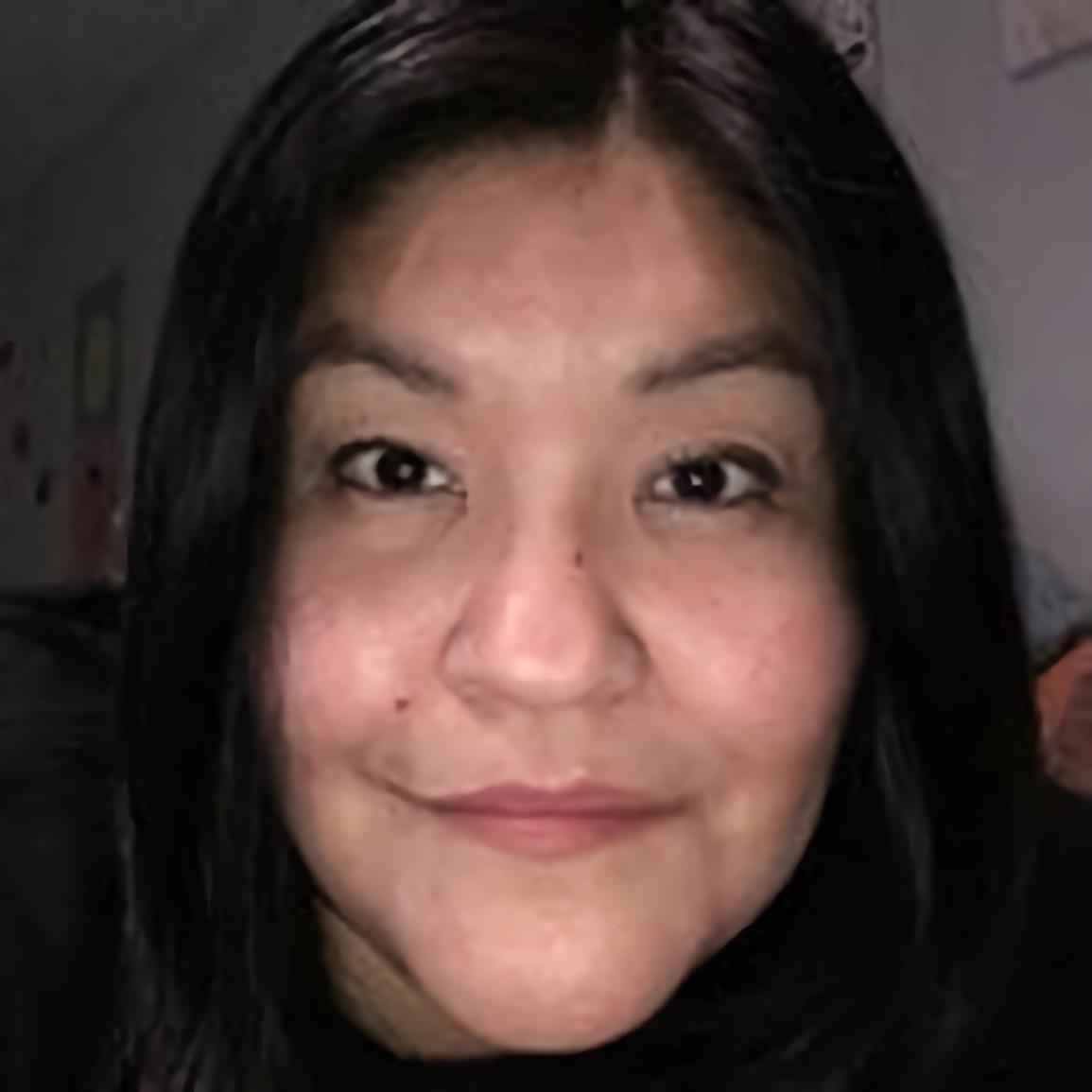
Sahtu Renewable Resources Board
Scholarships
Value: $2,000 to $20,000 depending on year of study, up to the PhD level.
Available: Unlimited
Eligibility: Pursuing a college diploma or university degree or minimum of two-year certificate program in Environmental Studies, Native Studies, or a related field Sahtú beneficiary or NWT resident who has completed the last two-years of high school in the Sahtú Settlement Area
Have a mark of 70 per cent (B-average) or higher in the last year of full-time study
Enrolled as a full-time student during tenure of the scholarship
Deadline: No deadline
The Association of Mackenzie Mountains Outfitters Scholarship
Value: $2,500
Available: Up to four
Organization: The Association of Mackenzie Mountains Outfitters
Eligibility: Applicants must be from Mackenzie Valley communities and enrolled in post-secondary studies pertaining to wildlife management, aviation or as a guide. Applicants enrolled in a certified guide school or in the aviation industry will also be considered.
Deadline: May 31
Aurora College Board of Governors
Student Leadership Award
Value: $300
Available: Three (one for each of Aurora College’s campuses)
Eligibility: Applicants must be enrolled at Aurora College and are assessed on the impact they have had on their peers and the school.
Deadline: Feb. 28
Diavik Diamond Mines Inc.
Scholarship for Aurora College Students
Value: $1,000
Available: Two
Eligibility: Applicants must be residents of the NWT and be enrolled in at least four courses in the first or second year of a two-year Aurora
College program and have maintained an average of 70 per cent or higher.
Deadline: Oct. 15
ONE Student Financial Support
Program Value: “Top up” funding for post-secondary students
Available: Varies
Organization: Tlicho Community Services
Agency
Eligibility: For Tlicho citizens attending an approved full-time program at a designated post-secondary institution.
Deadline: Year round
ATCO Continuous Academic Effort Scholarships
Value: $1,000
Availability: Five
Organization: ATCO
Eligibility: Students must be enrolled fulltime in adult learning basic education (ALBE) program at Aurora Campus or regional community learning centres in the Sahtu and Beaufort Delta.
Deadline: March 30
ATCO Developmental Studies
Scholarship
Value: $1,000
Available: Five
Organization: ATCO
Eligibility: Students enrolled in a full-time developmental studies – adult literacy basic education program or access – at Aurora Campus or regional community learning centres in the Sahtu and Beaufort Delta.
Deadline: March 30
Canada Post bursaries
Value: $2,000
Available: Varies
Organization: Canada Post Eligibility: You’re a Canadian and a member of a First Nation, Métis or Inuit community Have been out of school for 1 year or more and are returning Have already returned to school and completed 1 full year of studies
Have never received this award in the past (you can apply as many times as you want,
but you can only receive the award once)
Deadline: Aug. 31
Town of Inuvik Scholarship
Value: $1,000
Available: One
Organization: Town of Inuvik
Eligibility: Must be enrolled full-time in Aurora College’s office administration certificate program, Aurora campus. Preference may be given to an applicant from Inuvik.
Deadline: Contact Aurora College
Indigenous Language Revitalization Scholarship
Value: $5,000
Available: Ten
Organization: Department of Education, Culture and Employment
Eligibility: NWT students participating in certificate, diploma or degree programs with a direct focus in Indigenous Language Revitalization studies. NWT interpreters and translators are reminded that they can apply if they are interested in pursuing professional development or coursework in their field. This was to fulfill Action 2.4 in the NWT Indigenous Languages Action Plan.
Deadline: Dec. 1, 2022
Early Childhood Scholarship
Value: $5,000
Available: 30
Organization: Department of Education, Culture and Employment
Eligibility: Scholarships are awarded to NWT post-secondary students in a full-time accredited post-secondary institution to help with the costs of attending school while completing their diploma or degree in early childhood development.
Deadline: October 2022
Graeme Garson Scholarship
Value: Up to $20,000
Available: Varies
Organization: NWT Law Foundation
Eligibility: Offered to NWT students attending law school with debt reduction or income supplementation when they return to the territory to work. Students can receive $2,000 per year for three years while attending law school and $7,000 per year after returning to the territory to work for two years. Applicants should be residents of the NWT for at least three years, have attended a secondary school in the NWT and intend to return to the NWT after completing their education.
Deadline: May 15
John U. Bayly Q.C. Memorial Fund
Value: $1,000
Available: One
Organization: NWT Law Foundation
Eligibility: Must be a resident member in good standing of the NWT bar and seeking to upgrade mediation skills.
Deadline: Dec. 31
NWT Tourism Scholarship
Value: $1,500
Available: Two
Organization: Northwest Territories Tourism
Eligibility: Awarded to qualified NWT students attending a post-secondary institution in an accredited tourism and hospitality program.
One scholarship will be prioritized to an Indigenous student.
Deadline: July 22 at 5:30 p.m.
NWTSPCA Scholarship
Value: $500
Available: Two
Organization: NWTSPCA, with half of the funding coming from the Maureen Goldsmith Memorial Fund
Eligibility: Meant to reward those who dedicate their spare time to the betterment of animals. Applicants must be a high school graduate, planning to attend a post-secondary educational institution in a program relating to the betterment of animals, have some involvement in the community and have average academic standing.
Deadline: June 30
Bursary for Post-Secondary Studies in French
Value: $1,000 per semester, to a maximum of $2,000 per school year
Available: Multiple
Organization: Department of Education, Culture and Employment
Eligibility: To be eligible, you must: Have attended a NWT school for at least 5 years Be a NWT high school graduate
Be enrolled full time at a post-secondary institution in Canada •
Pass a minimum of four courses that semester, three of which must be in French
Deadline: For the Fall semester, Aug. 1 For the Winter semester, Dec. 1 For the Spring/Summer semester, April 1
Saint Patrick’s Parish Scholarships
Value: $500
Available: Four
Organization: St. Patrick’s Parish
Eligibility: Grade 12 Catholic students from St. Patrick’s High School and Sir John Franklin High School who are attending a post-secondary institution within 15 months of graduation. Students must have made a contribution to the St. Patrick’s Parish community in Yellowknife during their high school years including: attending Mass or other church celebrations, participation in ministry, church functions or celebrations, or assisted with the flea market. Students must write an essay on one of five predetermined topics.
Deadline: June 18
IDC scholarships
Value: Up to $1,000
Available: Two
Organization: Inuvialuit Development Corporation
Eligibility: Applicants must be enrolled in a business, education, health or science program.
Deadline: Contact the IDC
Frederick Lawrence (Larry) Gordon
IDC Scholarship
Value: $1,000
Available: One
Organization: Inuvialuit Development Corporation
Eligibility: Applicants must be enrolled in an education program.
Deadline: Contact the IDC
BP Canada Energy Scholarship
Value: $1,000
Available: One
Organization: Inuvialuit Regional Corporation
Eligibility: Applicants must be enrolled in a field supporting the oil and gas sector.
Deadline: Contact the IRC
Nelson Green/Joint Secretariat
Memorial scholarships
Value: Up to $1,000
Available: Two
Organization: Inuvialuit Regional Corporation
Eligibility: Applicants must be enrolled in the field of environmental science, policy or law.
Deadline: Contact the IRC
Aklak Air and Canadian Helicopters
Aviation scholarship
Value: Up to $2,000
Available: One
Organization: Inuvialuit Education Foundation

Eligibility: Applicants must be enrolled in the field of Aviation Mechanics, Commercial Aviation Piloting, Aviation Management or other aviation related careers.
Deadline: Contact the IEF
Roy “Bunker” Wilson scholarship
Value: $1,000
Available: One
Organization: Inuvialuit Regional Corporation
Eligibility: Applicants must be enrolled in a program that would positively impact the community through volunteering, committee involvement or through a work opportunity.
Deadline: Contact the IRC
Aboriginal Sport Circle of the NWT Scholarships
Value: $1,000-$3,000
Available: Multiple
Organization: Aboriginal Sport Circle of the NWT
Eligibility: For Indigenous NWT students who are pursuing a post-secondary education related to sport, recreation, culture or specifically surrounding indigenous people at a second-year level or higher. Preference is given to students pursuing kinesiology, physical education, recreation, sport administration business (related to or a minor in sport/recreation, Indigenous studies, education focused on bettering the lives of Indigenous people.
Deadline: Aug. 31
Andy Carpenter Scholarship
Value: $1,000
Available: Two
Organization: Inuvialuit Regional Corporation
Eligibility: Applicants must be enrolled in a program which involves the environmental field.
Deadline: Contact the IRC
Deadline: Aug. 31
Adolf Duesterhus Fund
Value: $5,000
Available: One
Organization: Yellowknife Community Foundation
Eligibility: Scholarships awarded to two-year residents of Yellowknife pursuing post-secondary studies in Science, Technology, Engineering or Mathematics (STEM), and who have plans to return to the North upon completion of their studies.
Deadline: May 15
Alice and Randy Daniels Music
Value: $2,000
Available: One
Organization: Yellowknife Community Foundation
Eligibility: Scholarships may be awarded to individuals involved in studying music as a full time post-secondary student at an approved post-secondary institution. The study of music may be in performance, song writing, or music production.
Deadline: May 15
Aurora College Scholarship
Value: $1,000
Available: One
Organization: Yellowknife Community Foundation
Eligibility: Applicants must be registered in a second or subsequent year of study at the Yellowknife/North Slave Aurora College campus and resided in Yellowknife for at least three years prior to application.
Deadline: May 15
Butler-Hushagen Health Education
Fund
Value: $2,000 Available: One
Organization: Yellowknife Community Foundation
Eligibility: Scholarships will be awarded to individuals who are a resident of the Northwest Territories, Nunavut or Yukon for a minimum of two years. To be eligible, an individual must be registered to attend a University, College or Technical Institute (e.g. SAIT) or an accredited program leading to a Degree or Diploma in a health-related field and planning on returning to the North after studies are complete.
Deadline: May 15
Chris Argue Memorial Fund
Value: $1,500
Available: One
Organization: Yellowknife Community Foundation
Eligibility: Applicants must be a resident of the NWT for at least two years, be planning to attend a post-secondary institution and demonstrate their experience and interest in wilderness travel and have identified goals relevant to this field.
Deadline: May 15
Con Employees Benevolent Fund
Value: $1,500
Available: One
Organization: Yellowknife Community Foundation
Eligibility: Open to high school graduates from Yellowknife who intend to pursue a trade or professional career in the mining industry or a related field, such as millwright, geo-technical engineer, environmental studies, geology or heavy equipment operation.
Deadline: May 15
Scholarship
Value: $1,000
Available: One
Organization: Yellowknife Community Foundation
Eligibility: Applicants must be a resident of the NWT for at least two years, and entering their first or second year of graduate studies at the University level (Masters or PhD).
Deadline: May 15
David Sutherland Memorial Fund
Value: $1,500
Available: One
Organization: Yellowknife Community Foundation
Eligibility: Applicants must be a resident of the NWT for at least two years, planning to attend a post-secondary institution and be members of an NWT cross-country ski organization.
Deadline: May 15
Rio Tinto Diavik Community Scholarship Fund
Value: $2,000
Available: Three
Organization: Yellowknife Community Foundation
Eligibility: One scholarship is to assist individuals pursuing a career related to mining or resource development such as geological or geomatics engineering and/or mining related trades. A second scholarship is to assist individuals pursuing a career in mining support such as geology, environmental or earth science, communication, finance or procurement. The third scholarship will favour women pursuing education in science, technology, engineering or math.
Deadline: May 15
Doug Bothamley Memorial Fund
Value: $1,000
Available: One
Organization: Yellowknife Community Foundation
Eligibility: One scholarship to assist students who are attending university and have been active in softball, curling or golf as a player or a coach.
Deadline: May 15
Fund
Value: $1,000
Available: One
Organization: Yellowknife Community Foundation
Eligibility: Open to individuals who have been a resident of the NWT for at least two years and are entering their second or subsequent year of post-secondary studies in social work or nursing at a recognized college or university.
Deadline: May 15
Enough Talk, Hurry Up and Do It
Already Arts Scholarship
Value: $1,000
Available: One
Organization: Yellowknife Community Foundation
Eligibility: Individuals must be Grade 12 students at Sir John Franklin High School who have been accepted into a post-secondary program for the performing arts, film, music or writing.
Deadline: May 15
Fine and Performing Arts Fund Scholarships
Value: $2,000
Available: Two
Organization: Yellowknife Community Foundation
Eligibility: Supports NWT residents interested in pursuing education or training opportunities in the fine or performing arts. Individuals must have lived in the NWT for at least one year and been accepted in a recognized program with a minimum of 100 hours duration.
Deadline: May 15
Gary Robinson Memorial Fund
Value: $1,000 - $3,000
Available: Varies
Organization: Yellowknife Community Foundation
Eligibility: Provides financial support to individuals attending institutions offering programs in search and rescue/recovery, outdoor skills, survival training, or emergency response activities.
Deadline: May 15
B14 Monday, March 20, 2023
Continued from B13
Helping Children Soar Scholarship
Value: $1,000
Available: One
Organization: Yellowknife Community Foundation
Eligibility: This scholarship was established to assist residents of the Northwest Territories pursue post-secondary education who have spent time in foster care.
Deadline: May 15
Jenny Gamble-Fournier Memorial Scholarship
Value: $1,000
Available: One
Organization: Yellowknife Community Foundation
Eligibility: Students must be graduating from Sir. John Franklin High School and pursuing a post-secondary education with an emphasis on the arts.
Deadline: May 15
John Tumchewics Memorial Fund
Value: $5,000
Available: One
Organization: Yellowknife Community Foundation
Eligibility: Assists individuals with helicopter flight training, upgrading by endorsements or ratings and the purchase of safety equipment. Aircraft maintenance engineers working toward a helicopter endorsement may also apply. Scholarship funds may also be used for other individuals seeking training in the aviation field.
Deadline: May 15
Jonas Konge Memorial Fund
Value: $2,500
Available: One
Organization: Yellowknife Community Foundation
Eligibility: Open to individuals who have lived in the NWT for at least five years and are entering their second or subsequent year of post-secondary studies in medicine or nursing with plans to return to the North after graduation.
Deadline: May 15
Legislative Assembly of the NWT
Fund
Value: $2,000
Available: One
Organization: Yellowknife Community Foun dation
Eligibility: Applicants must have resided in the NWT for at least 10 years and be entering their first or subsequent years of studies in a recognized post-secondary program in the po litical science or a related field. Past recipients are not eligible to apply in subsequent years.
Deadline: May 15
Lilly Borges Oldham Second Language Scholarship
Value: $1,000
Available: One
Organization: Yellowknife Community Foun dation
Eligibility: Applicants must be registering in a recognized post-secondary program of study in a second language or culture. They must also be a Grade 12 or adult student and a resident of Yellowknife for their Grade 11 and Grade 12 years.
Deadline: May 15
Luke Charpentier Memorial Fund

Value: $3,000
Available: One
Organization: Yellowknife Community Foun dation
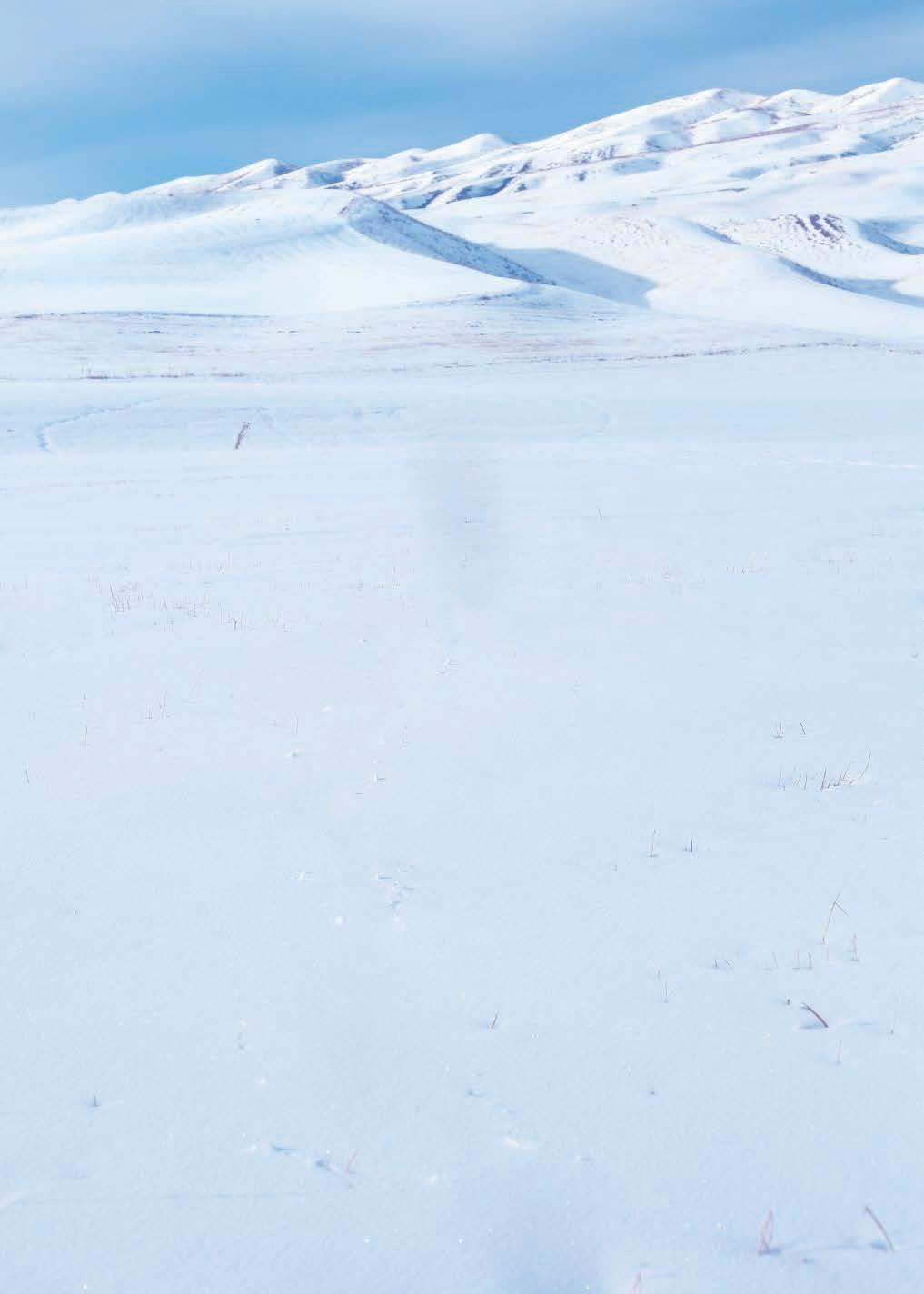
Eligibility: Applicants must be residents of the City of Yellowknife and be attending a post-secondary or trades institution.
Deadline: May 15
Rio Tinto Indigenous Student
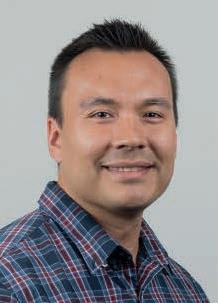
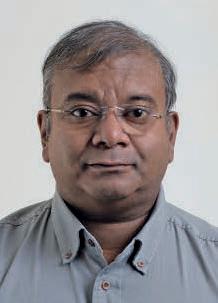
Tourism Scholarship
Value: $2,000
Available: One
Organization: Rio Tinto & NWT Tourism
Eligibility: Awarded to a qualified Indigenous NWT student attending a post-secondary institution in an accredited tourism and hospitality program.
Deadline: July 22 at 5:30 p.m.
Malcolm Lafferty, Culinary Arts,Thompson Rivers University Scholarship(s) Awarded: Det’on Cho Management LP. Bouwa Whee Catering
Pat McMahon Memorial Fund
Value: $1,000
Available: One
Organization: Yellowknife Community Foundation
Eligibility: Scholarship awarded to female individuals who are pursuing studies in tourism, public administration and/or political science.
Deadline: May 15
Randy McBride Hockey Project Fund
Value: $1,500
Available: One
Organization: Yellowknife Community Foundation
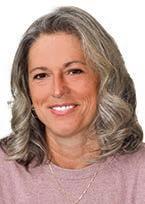
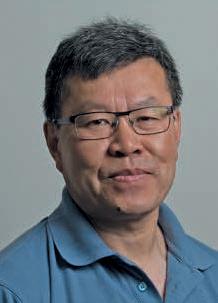
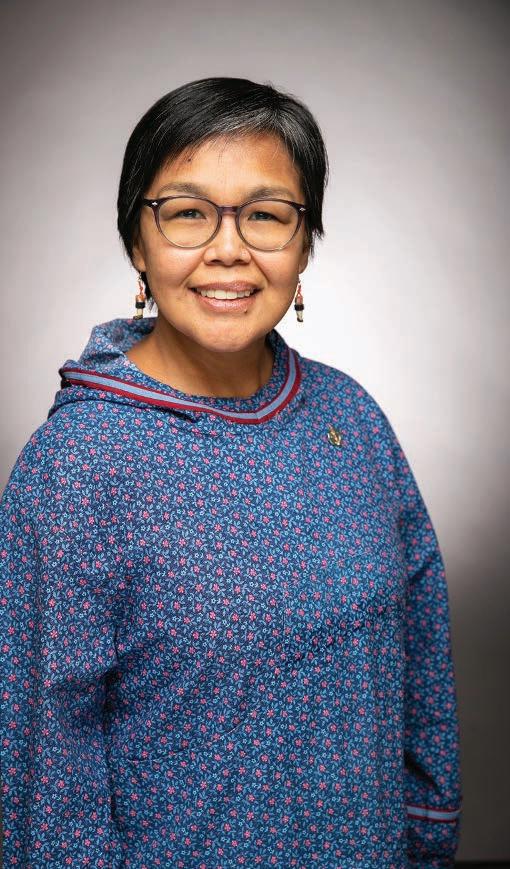
Eligibility: Supports NWT youth (male or female) pursuing advanced levels of hockey not
available in the NWT.
Deadline: May 15
Rio Tinto Diavik Diamond Mines
Post-Secondary Scholarship for 1st Year Students
Value: $1,500
Available: Two
Organization: Rio Tinto Diavik Diamond Mines Inc.




Eligibility: For students from the Northwest Territories and West Kitikmeot Region of Nunavut entering their first year of post-secondary studies.
Deadline: Aug. 15 Continued
DEGREES OF SUCCESS
Rio Tinto Diavik Diamond Mines Post-Secondary Scholarship
Value: $1,500
Available: Two
Organization: Rio Tinto Diavik Diamond Mines Inc.
Eligibility: For students from the Northwest Territories and West Kitikmeot Region of Nunavut, who are returning to post-secondary studies, from second-year onward.
Deadline: Aug. 15
Rio Tinto Indigenous Student Tourism Scholarship
Value: $2,000
Available: One
Organization: Rio Tinto & NWT Tourism
Eligibility: Awarded to a qualified Indigenous NWT student attending a post-secondary institution in an accredited tourism and hospitality program.
Deadline: July 22 at 5:30 p.m.
Wally12Million
Value: $3,000
Available: One
Organization: Yellowknife Community Foundation
Eligibility: Individuals must be a resident of the NWT and entering their second or subsequent year of studies in fine arts or music at a recognized institution.
Deadline: May 15
United Soccer Coaching Fund
Value: $1,000
Available: One
Organization: Yellowknife Community Foundation
Eligibility: Applicants must be pursuing advanced levels of coaching soccer and be enrolled in a school, college or university for coach education, sport leadership in soccer or a soccer coaching licence. Applicants must be a resident of the NWT for a minimum of two years.
Deadline: May 15
Lena Gosselin Memorial Fund
Value: $3,000
Available: One
Organization: Yellowknife Community Foundation
Eligibility: Scholarships may be awarded to support individuals seeking training in the area of executive office administration and management with a continued interest to work within the Northwest Territories.
Deadline: May 15
Tunngavik Post-Secondary
Scholarship
Value: $2,500
Available: Up to 200
Organization: Nunavut Tunngavik Foundation/ Nunavut Tunngavik Inc.
Eligibility: Must be Inuit post-secondary students enrolled under the Nunavut Agreement.
Deadline: Contact Nunavut Tunngavik
Tunngavik Scholarship for Skill and Employment Advancement
Value: $1,000
Available: Up to 250
Organization: Nunavut Tunngavik Foundation/ Nunavut Tunngavik Inc.
Eligibility: Attend a recognized program related to trades/employment skill development that is four weeks or longer duration
Deadline: Contract Nunavut Tunngavik


Jose Amaujaq Kusugak Memorial Scholarships
Value: $5,000
Available: Two
Organization: Nunavut Tunngavik Incorporated
Eligibility: Open to post-secondary students in the fields of education, Inuit language or the advancement of Inuit rights.
Deadline: July 9
Interpreter Translator Student Award
Value: $1,000
Mackenzie Tsatchia, University & College Access Program, Aurora College
Scholarship(s)
Awarded:ProconKete Whii
Available: Two
Organization: Nunavut Tunngavik Incorporated
Eligibility: Based on academic merit among first and second year students in Nunavut Arctic College’s interpreter translator diploma program. Deadline: End of the school year
Nunavut Tunngavik Inc. Nursing Scholarship
Value: $500 Available: One
Organization: Nunavut Tunngavik Inc.
Eligibility: Based on merit among students in Nunavut Arctic College’s nursing program.
Deadline: End of the school year
John Amagoalik Scholarship
Value: $5,000
Available: One
Organization: Qikiqtani Inuit Association
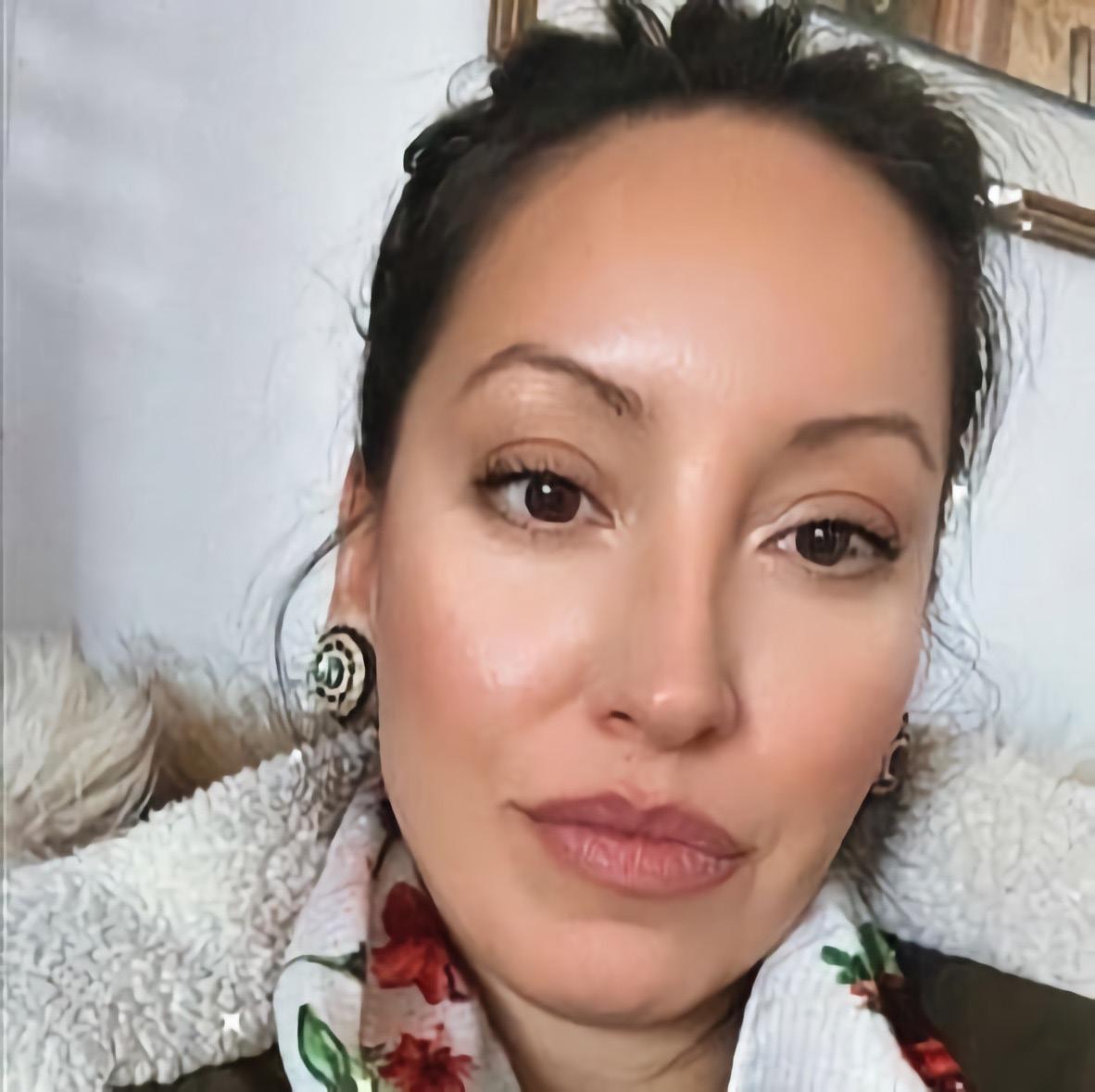
Eligibility: QIA will prioritize applications from post-secondary students enrolled under the Nunavut Agreement who are entering a field that promotes Inuit language and culture.
Deadline: Contact QIA
Continued on B16
QIA Scholarship
Value: $2,500
Available: 80
Organization: Qikiqtani Inuit Association
Eligibility: The QIA Scholarship was launched in 2017-18 for students in all 13 Qikiqtani communities. Applicants must have a valid Nunavut Tunngavik Inc. card, be enrolled under the Nunavut Agreement in the Qikiqtani region and be enrolled in post-secondary education.
Deadline: Contact QIA
Baffinland Scholarships
Value: $5,000
Available: Five
Organization: Baffinland Iron Mines Corporation
Eligibility: For Inuit living in the five Qikiqtani communities adjacent to the Mary River mine, scholarships will be awarded annually in various fields of study.
Deadline: Contact Baffinland
KIA Completion Awards
Value: $1,000 to $10,000+
Available: Numerous
Organization: Kivalliq Inuit Association
Eligibility: For Kivalliq beneficiaries seeking to improve their higher level of education and skills in the technical trades or other professions. A college or technical school certificate program is eligible for $1,000; a college or technical school diploma can bring $2,500; an undergraduate degree is valued at $5,000 in assistance, with an additional $1,000 per year completed; a master’s degree or advanced professional degree can garner $7,500, plus $1,000 for each year completed; and a Ph.D/doctorate can fetch $10,000, in addition to $1,000 for each year completed.
Deadline: Within six months of graduation from an educational program
Ukkusiksalik Scholarship
Value: $12,000 fund
Available: Multiple
Organization: Kivalliq Inuit Association
Eligibility: For Kivalliq Inuit who pursue education or training in the following fields: traditional ecological knowledge, archeology, anthropology, history, sociology and other social sciences; biology, geography, geology, and other natural sciences; renewable resource management, including wildlife management, geographic information systems, remote sensing, environmental technology; administration, including business management, financial management, accounting, bookkeeping, and human resource management.
Deadline: Aug. 31
Sierra Sky Waugh, Culinary Arts, NAIT Scholarship(s) Awarded: Bouwa Whee Catering

Sakku Scholarship
Value: $10,000 fund
Available: Multiple
Organization: Kivalliq Inuit Association
Eligibility: Preference is given to students entering the fields of administration, business, financial and management studies.
Deadline: Aug. 31
KIA President’s Scholarship
Value: $10,000 fund
Available: Multiple
Eligibility: Applicants must be entering second year or higher of post-secondary education and students must demonstrate an overall average of 70 per cent or higher; and at the discretion of the KIA president.
Deadline: Aug. 31
Meliadine Scholarship
Value: $30,000 fund
Available: Multiple
Organization: Kivalliq Inuit Association and Agnico Eagle Eligibility: Applicants enrolled in a mine-related field of study will be given preference and applicants must maintain an overall cumulative weighted average of 70 per cent or above to receive the award.
Deadline: Aug. 31
Whale Tail Scholarship
Value: $30,000 fund
Available: Multiple
Organization: Kivalliq Inuit Association and Agnico Eagle
Eligibility: Applicants enrolled in a mine-related field of study will be given preference and applicants must maintain an overall cumulative weighted average of 70 per cent or above to receive the award.
Deadline: Aug. 31
KIA Scholarship
Value: $1,500-$5,000
Available: Multiple
Organization: Kitikmeot Inuit Association
Eligibility: Beneficiaries of the Nunavut Agreement and registered to one of the Kitikmeot communities are eligible to apply for a KIA Scholarship. Up to $1,000 is available for students studying in their home communities; up to $5,000 for those studying outside their home community.
Deadline: July 1-Aug. 31 and Jan. 1-March 31
KIA Graduation Award
Value: $500-$10,000
Available: Numerous
Organization: Kitikmeot Inuit Association
Eligibility: Beneficiaries of the Nunavut Agreement and registered to one of the Kitikmeot communities are eligible to apply for a KIA scholarship, from high school graduates to Ph.D-level students.
Deadline: Must apply within six months of graduation
Fred R. Elias Graduation Award
Value: $1,500 to $5,000
Available: Multiple
Organization: Kitikmeot Inuit Association
Eligibility: Targeted at students who have successfully completed business and management studies or related disciplines.
Deadline: Contact the Kitikmeot Inuit Association
Simata Pitsiulak Aviation Scholarship
Value: Up to $7,500
Available: Four
Organization: Department of Economic Development and Transportation
Eligibility: Open to full-time residents of Nunavut (two-year minimum residency) pursuing full-time aviation-related studies: airline or airport operations or management, aircraft maintenance and pilot training.
Deadline: Contact the GN
Qikiqtaaluk Corporation Scholarship
Value: TBA
Available: TBA
Organization: Qikiqtaaluk Corporation and group of companies
Eligibility: Open to Nunavut Land Claim beneficiaries who are permanent residents of the Qikiqtani region and studying management, environmental sciences or project management at a recognized institution.
Deadline: Contact the Qikiqtaaluk Corporation
Laura Ulluriaq Gauthier Scholarship

Value: $5,000
Available: One
Organization: Qulliq Energy Corporation
Eligibility: Nunavummiut students enrolled in a post-secondary education program for the September 2022 semester are eligible to apply. The successful candidate will be chosen based on a strong academic record and outstanding community involvement. An announcement will be made in the spring with details on how to apply for the scholarship.
Deadline: June 30
Jorgen Bolt Memorial Scholarship
(formerly the Jim Noble Nunavut Wildlife Management Board Scholarship)
Value: $5,000 each
Available: Two to three
Organization: Nunavut Wildlife Management Board
Eligibility: Applicants must be entering or continuing with post-secondary education that goes towards a degree, diploma or certificate in wildlife, wildlife management or the application of Inuit Qaujimajatuqangit in wildlife management in Nunavut; applicants must currently be a resident of Nunavut and have resided in the territory for at least the past two years; the applicant must demonstrate a minimum academic achievement of 65 per cent overall academic record.
Deadline: Sept. 20
Nunasi Scholarship
Value: $2,500
Available: Up to 11
Organization: Nunasi Corporation in partnership with Nuna Logistics, NCC Investment Group Ltd., Polar Vision, Larga Kitikmeot Eligibility: Applicants must be beneficiaries of the Nunavut Land Claims Agreement and enrolled in full-time studies at an accredited education institution.
Deadline: Contact Nunasi Corporation
Sport and Recreation Scholarships
Value: Up to $5,000 each
Available: Multiple
Organization: Government of Nunavut
Eligibility: Open to post-secondary students pursuing education/ kinesiology, sports administration, sports sciences or recreation at a recognized college or university.
Deadline: Contact the Government of Nunavut
Queen Elizabeth II scholarships
Value: Up to $15,000 annually in total
Available: Varies
Organization: Government of Nunavut
Eligibility: The scholarships are presented yearly to the top Nunavut students in the Nunavut Arctic College nursing program.
Deadline: Contact the Government of Nunavut
Dr. Christine Egan Memorial Scholarship
Value: Varies ($17,600 fund in 2021-22)
Available: Multiple
Organization: University of Manitoba
Eligibility: Open to Nunavut Inuit who have completed one year of a baccalaureate nursing degree and are enrolled full time for a second, third or fourth year in nursing, with a GPA of 2.5 (or equivalent) in their most recent year of full-time study and who have demonstrated their commitment to a career in nursing in Nunavut Deadline: End of September
Value: up to $2,400
Available: Three
Organization: Nunavut Implementation Training Committee
Eligibility: Applicants must be enrolled as a beneficiary in the Nunavut Land Claims
Agreement, enrolled or accepted by a recognized full-time accredited university or college program of at least two years duration and have maintained an overall average higher than 65 per cent in the previous year of study – a 75 per cent average must be maintained while receiving the scholarship.
Deadline: Aug. 1 and Dec. 1
Technical Professional Studies
Scholarships
Value: Up to $5,000
Available: Varies
Organization: Government of Nunavut
Eligibility: Open to students studying engineering, informatics, community planning, business studies, firefighting, training, prevention and land administration. Priority is given to beneficiaries of the Nunavut Land Claims
Agreement.
Deadline: Contact the Government of Nunavut
Financial Assistance for Nunavut
Students Scholarships
Value: Up to $1,500
Available: Numerous
Organization: Government of Nunavut
Eligibility: Open to students attending designated post-secondary institutions and academic programs.
Deadline: No deadline
Atuqtuarvik Corporation 20th
Anniversary Scholarships
Value: $2,500
Available: Two
Organization: Atuqtuarvik Corporation
Eligibility: Applicants must be Nunavut Inuit pursuing post-secondary education
Deadline: Contact Atuqtuarvik Corporation
Atuqtuarvik Corporation Nunavut Sivuniksavut Alumni Scholarship
Value: $2,500
Available: One
Organization: Atuqtuarvik Corporation
Eligibility: Applicants must be a graduate of the Nunavut Sivuniksavut training program and currently enrolled in a post-secondary institution.
Deadline: Contact Atuqtuarvik Corporation
John Hickes Business Scholarship
Value: $5,000
Available: One
Organization: Atuqtuarvik Corporation
Eligibility: Enrolment in a full-time post-secondary business program.
Deadline: Contact Atuqtuarvik Corporation
Bob Spence Memorial Scholarship
Value: $2,000
Available: One
Organization: Northwest Territories and Nunavut Association of Professional Engineers and Geoscientists (NAPEG) Education Foundation
Eligibility: NWT or Nunavut student entering or attending post-secondary studies leading to a degree in Engineering or Geoscience at undergraduate level in a recognized university. Applicants’ principal residence must have been in the NWT or Nunavut for at least 12 months immediately preceding the award of any scholarship, bursary, grant or financial assistance. Should applicants have been a student at a school outside of the NWT or Nunavut during the immediately preceding 12 month period; the individual will be deemed to have maintained his or her principal residence in the NWT or Nunavut for that period, so long as he or she has maintained a valid NWT or Nunavut Health Care Card during that time.
Preference will be given to highly motivated individuals with a strong academic background and demonstrated citizenship and leadership capabilities.
Deadline: Sept. 30
Mel Brown Memorial Scholarship
Value: $2,000
Available: One
Organization: Northwest Territories and
Nunavut
Association of Professional Engineers and Geoscientists (NAPEG) Education Foundation
Eligibility: NWT or Nunavut student entering or attending post-secondary studies leading to a degree in Engineering or Geoscience at undergraduate level in a recognized university. Applicants’ principal residence must have been in the NWT or Nunavut for at least 12 months immediately preceding the award of any scholarship, bursary, grant or financial assistance. Should applicants have been a student at a school outside of the NWT or Nunavut during the immediately preceding 12 month period, the individual will be deemed to have maintained his or her principal residence in the NWT or Nunavut for that period, so long as he or she has maintained a valid NWT or Nunavut Health Care Card during that time.
Preference will be given to highly motivated individuals with a strong academic background and demonstrated citizenship and leadership capabilities.
Deadline: Sept. 30
Graduate studies scholarship
Value: $7,500
Available: Two
Organization: Northwest Territories and Nunavut Association of Professional Engineers and Geoscientists (NAPEG) Education Foundation
Eligibility: Applicants must be Northwest Territories or Nunavut resident member engineers and geoscientists, NAPEG professional members or members-in-training, and registered as a full-time student for the following academic year furthering their studies in engineering or geoscience.
Deadline: Aug. 15
Northern Aviation Scholarship
Value: $2,500
Available: One
Organization: Yellowknife Community Foundation
Eligibility: To support individuals from the NWT or Nunavut pursuing a post-secondary education in the aviation industry.
Deadline: May 15
George Cleary Memorial Scholarship
Value: $1,000
Available: One
Organization: Yellowknife Community Foundation
Eligibility: To support Indigenous residents
and Sahtu beneficiaries of the Northwest Territories to pursue a post-secondary or trades education.
Deadline: May 15
Northern Futures Scholarship
Value: $4,000
Available: Six (with the aim of awarding at least half of the scholarships to Indigenous students)
Organization: Northwestel
Eligibility: Applicants must reside within Northwestel’s operating area and be enrolled in a degree or diploma program in the fields of engineering, commerce, business, computer science, telecommunications, marketing, communications, human resources, or electrical.
Deadline: June 30 (Applications open at beginning of May)
For more information check out the website: https://www.nwtel.ca/scholarships
Arctic Co-operatives Award
Value: $2,500
Available: One
Organization: Association of Canadian Universities of Northern Studies (ACUNS)
Eligibility: Applicants must be pursuing studies focused on the understanding and development of Arctic co-operatives in Nunavut, the NWT or Northern Manitoba.
Deadline: Feb. 15, 2022
Gunther Abrahamson Research and Management Award
Value: $1,500 to $5,000
Available: One
Organization: Association of Canadian Universities for Northern Studies
Eligibility: Applicants must be pursuing masters or doctorate studies – either traditional knowledge or scientific – which contribute to the understanding of barren-ground caribou and their habitat.
Deadline: Feb. 15, 2022
POLAR Northern Resident Award
Value: $5,000
Available: Eight
Organization: Association of Canadian Universities of Northern Studies
Eligibility: Applicants must have resided in Nunavut, NWT, Yukon or the Provincial North for at least eight years and be currently enrolled, part-time or full-time, at either a Northern college or undergraduate diploma/ degree program at a Canadian university.
Deadline: Feb. 15, 2022
Continued on B18
POLAR Northern Resident Scholarship
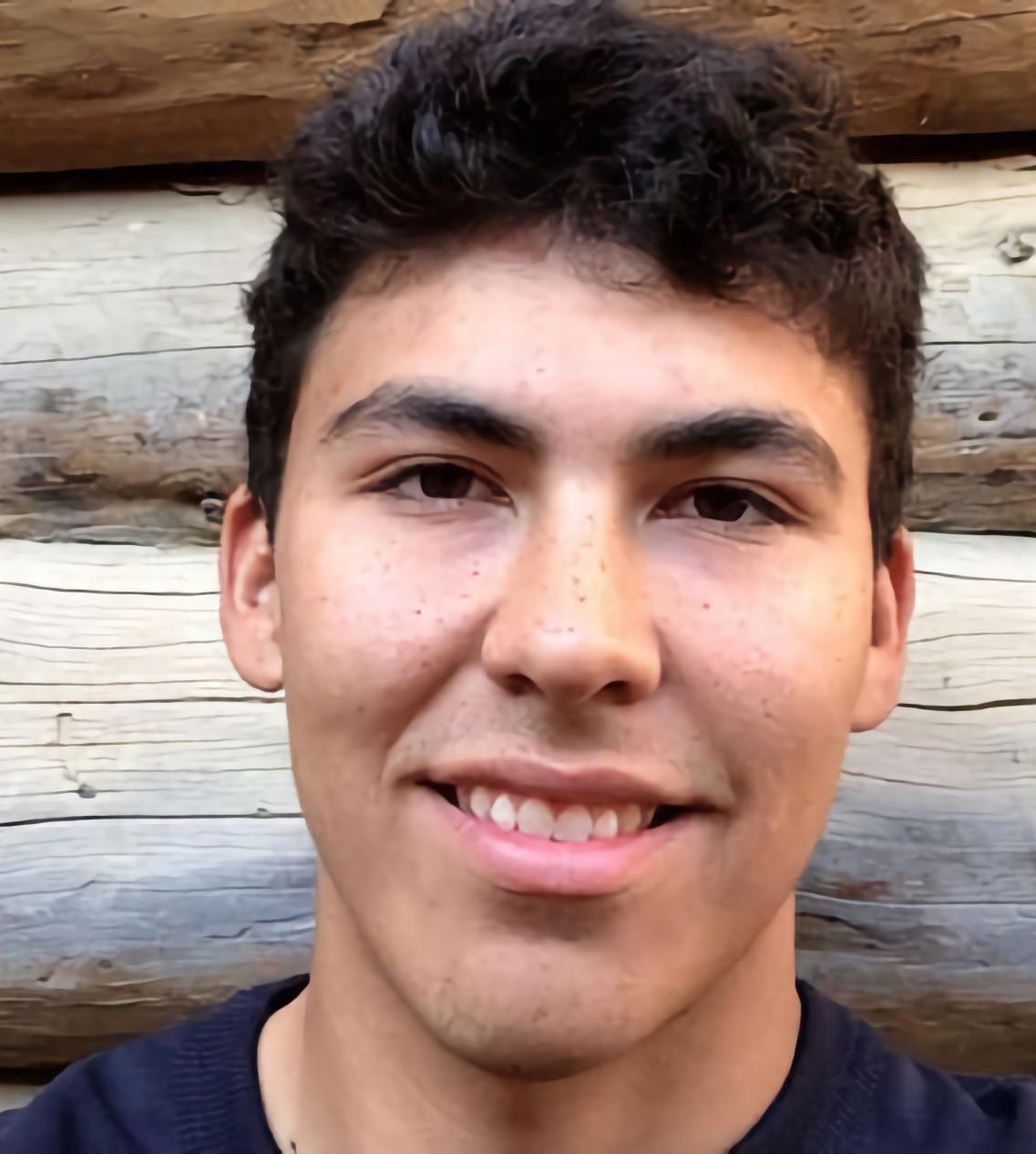
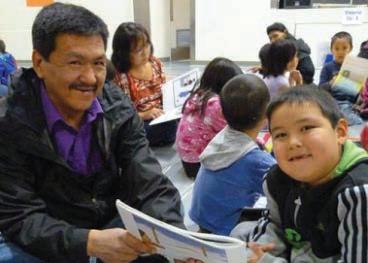
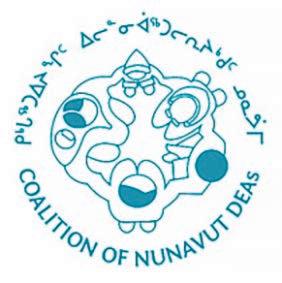

Value: $10,000
Available: Four
Organization: Association of Canadian Universities for Northern Studies
Eligibility: Applicants must have resided in Nunavut, the NWT, Yukon or the Provincial North for at least eight years and be enrolled in full-time post-secondary education at the undergraduate level whose program makes a contribution to the North.
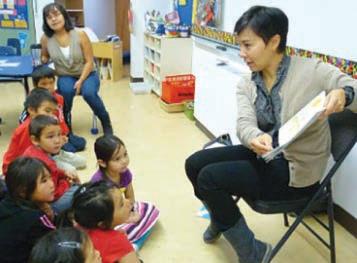
Deadline: Feb. 15, 2022
Canadian Northern Studies Trust
Scholarship
Value: Up to $10,000
Available: One
Organization: Association of Canadian Universities for Northern Studies
Eligibility: Intended to advance knowledge of Canada’s North. To qualify you must be a Canadian citizen or permanent resident, enrolled in full time post-secondary education and have an aspect of northern or circumpolar fieldwork included as part of your research.
Deadline: Feb. 15, 2022
POLAR Scholarship
Value: up to $10,000
Available: One
Organization: Association of Canadian Universities for Northern Studies
Eligibility: Intended to advance knowledge of Canada’s North. To qualify you must be a Canadian citizen or permanent resident, enrolled in full time post-secondary education and have an aspect of northern or circumpolar fieldwork included as part of your research.
Deadline: Feb. 15, 2022
Dr. Jim McDonald Scholarship
Value: up to $5,000
Available: One
Organization: Association of Canadian Universities for Northern Studies
Eligibility: Intended for graduate studies in the social sciences and humanities as these pertain to Canada’s north and its inhabitants.
To qualify you must be a Canadian citizen or permanent resident, enrolled in a full time post-secondary graduate-level program at a Canadian university and have an aspect of northern or circumpolar fieldwork included as part of your research.
Deadline: Feb. 15, 2022
Dr. Weston Blake Jr Memorial
Doctoral Scholarship
Value: up to $5,000
Available: One
Organization: Association of Canadian Universities for Northern Studies
Eligibility: Intended to advance knowledge of Canada’s North. To qualify you must be a Canadian citizen or permanent resident, enrolled full time in a doctoral program at a Canadian university and have an aspect of northern or circumpolar fieldwork included as part of your research.
Deadline: Feb. 15, 2022
POLAR Antarctic Doctoral Scholarship
Value: up to $10,000
Available: Four
Organization: Association of Canadian Universities for Northern Studies
Eligibility: Intended to advance knowledge of the Antarctic and polar science. To qualify you must be a Canadian citizen or permanent resident, enrolled in a full time post-secondary doctoral program at a Canadian university and demonstrate plausible Antarctic research.
Deadline: Feb. 15, 2022
Arctic Canadian Diamond Company
Ekati
Plus Post-Secondary Scholarship
Value: $2,500
Available: Two
Organization: Arctic Canadian Diamond Company
Eligibility: Permanent Northern residents accepted or enrolled in full-time post-secondary education who intend to return to the North upon completion of their education.
Deadline: Nov 15
DEGREES OF SUCCESS
Continued from B18
Arctic Canadian Diamond Company Impact and Benefit Agreement (IBA) Scholarships

Value: Confidential
Available: Varies
Organization: Arctic Canadian Diamond Company and IBA partners
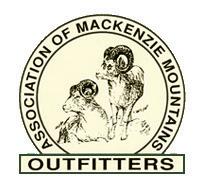



Eligibility: Students in communities that are part of Arctic’s impact benefits agreements are encouraged to contact their IBA representative for details: Tlicho Government, Akaitcho
Treaty 8 – LKDFN & YKDFN, North Slave Metis Alliance and the Hamlet of Kugluktuk.
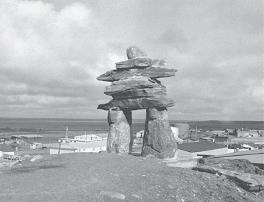
Deadline: Varies
Captain Nichola K S Goddard Memorial Graduate Scholarship
Value: $8,400
Available: One
Organization: University of Calgary
Eligibility: Open to students registered in a full-time graduate program. Candidates must be citizens of Papua New Guinea or Afghanistan or members of Canada’s First Nations, Inuit or Metis people.
Deadline: Contact university’s faculty of graduate studies
Gil Purcell Memorial Journalism Scholarship
Value: $4,000
Available: One
Organization: The Canadian Press
Eligibility: Awarded to an Indigenous Canadian who is enrolled in a Canadian university or community college in a journalism program or actively involved in a news organization associated with the institution. Applicants are encouraged to submit samples of journalism activity they have performed.


Deadline: Nov. 1

